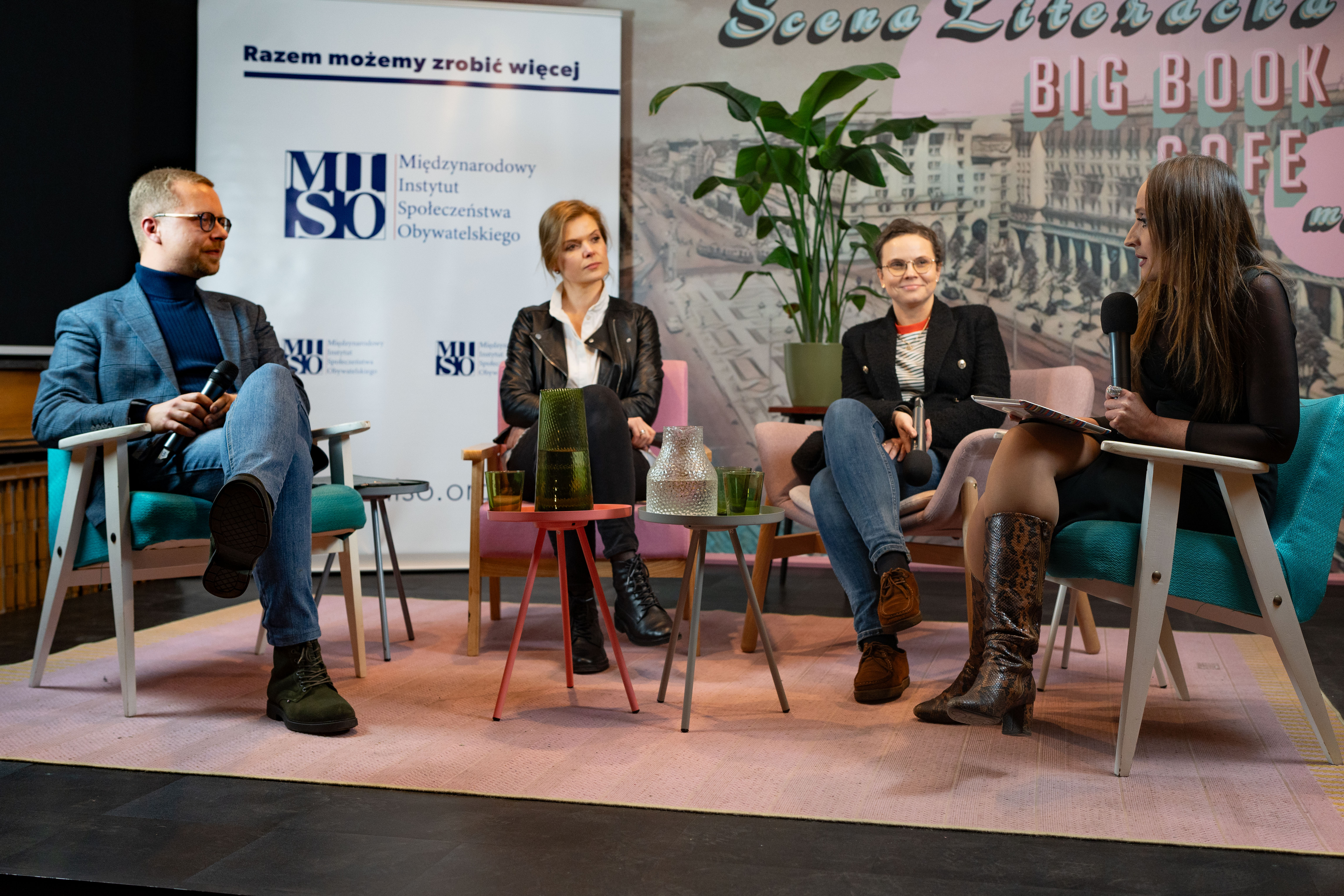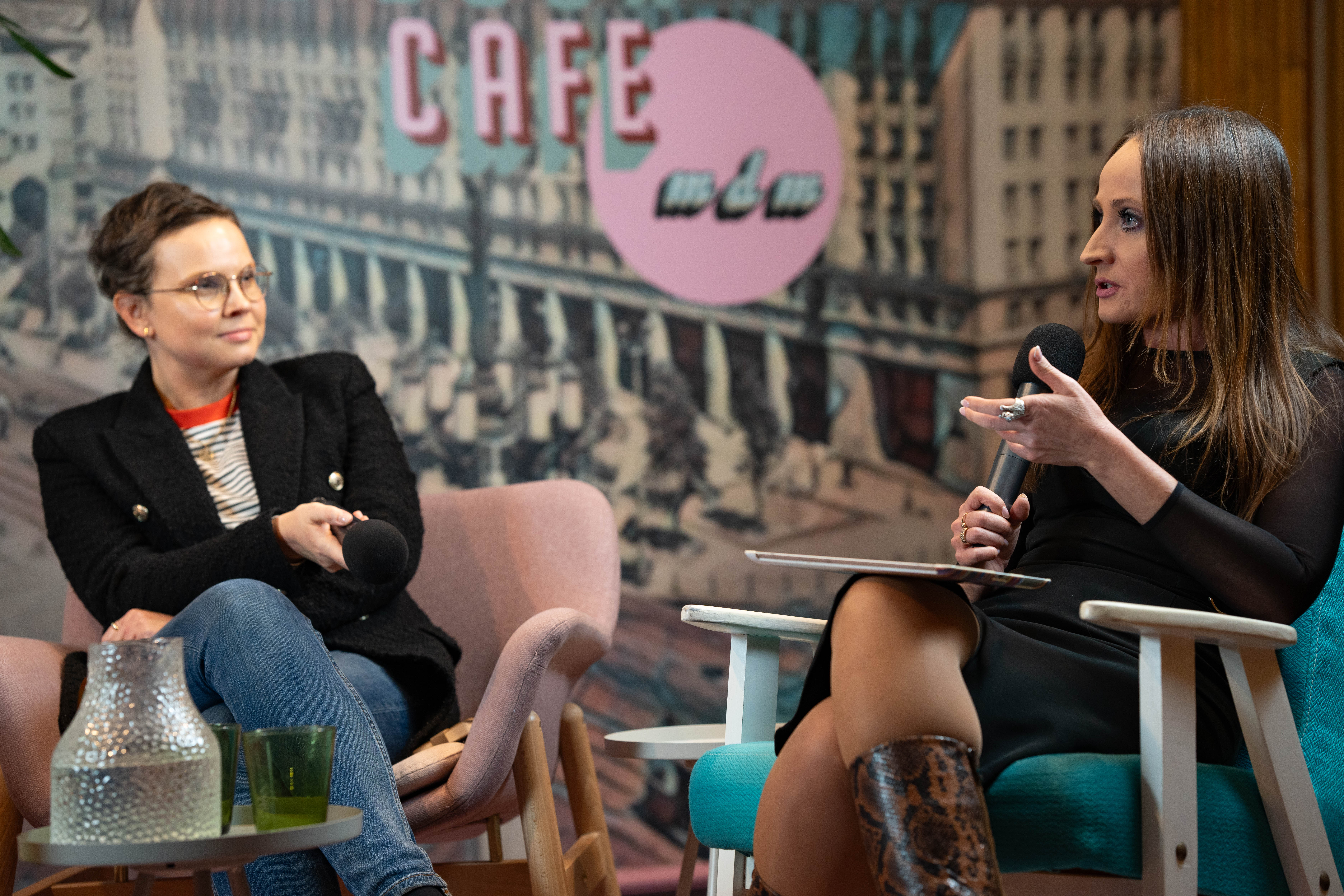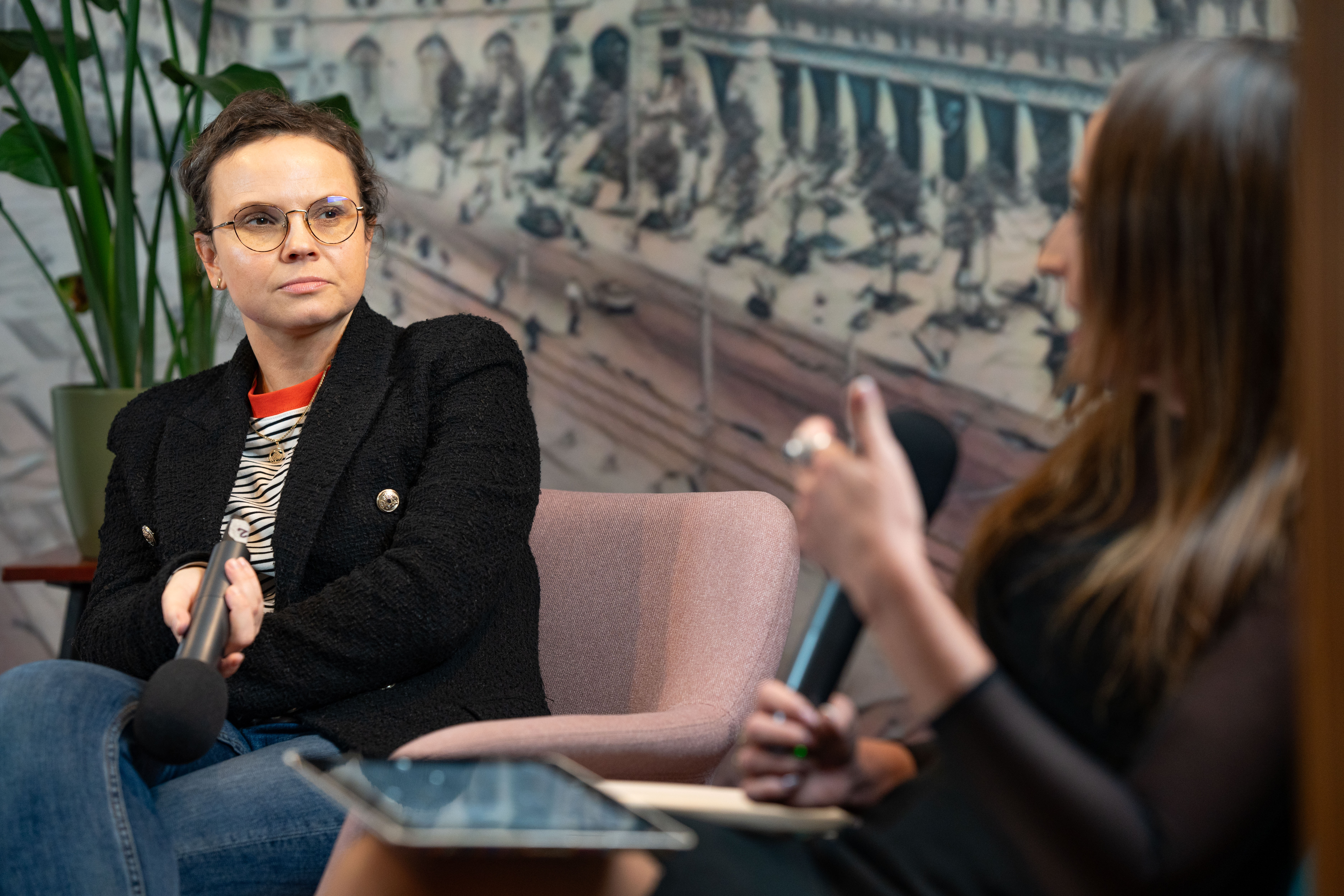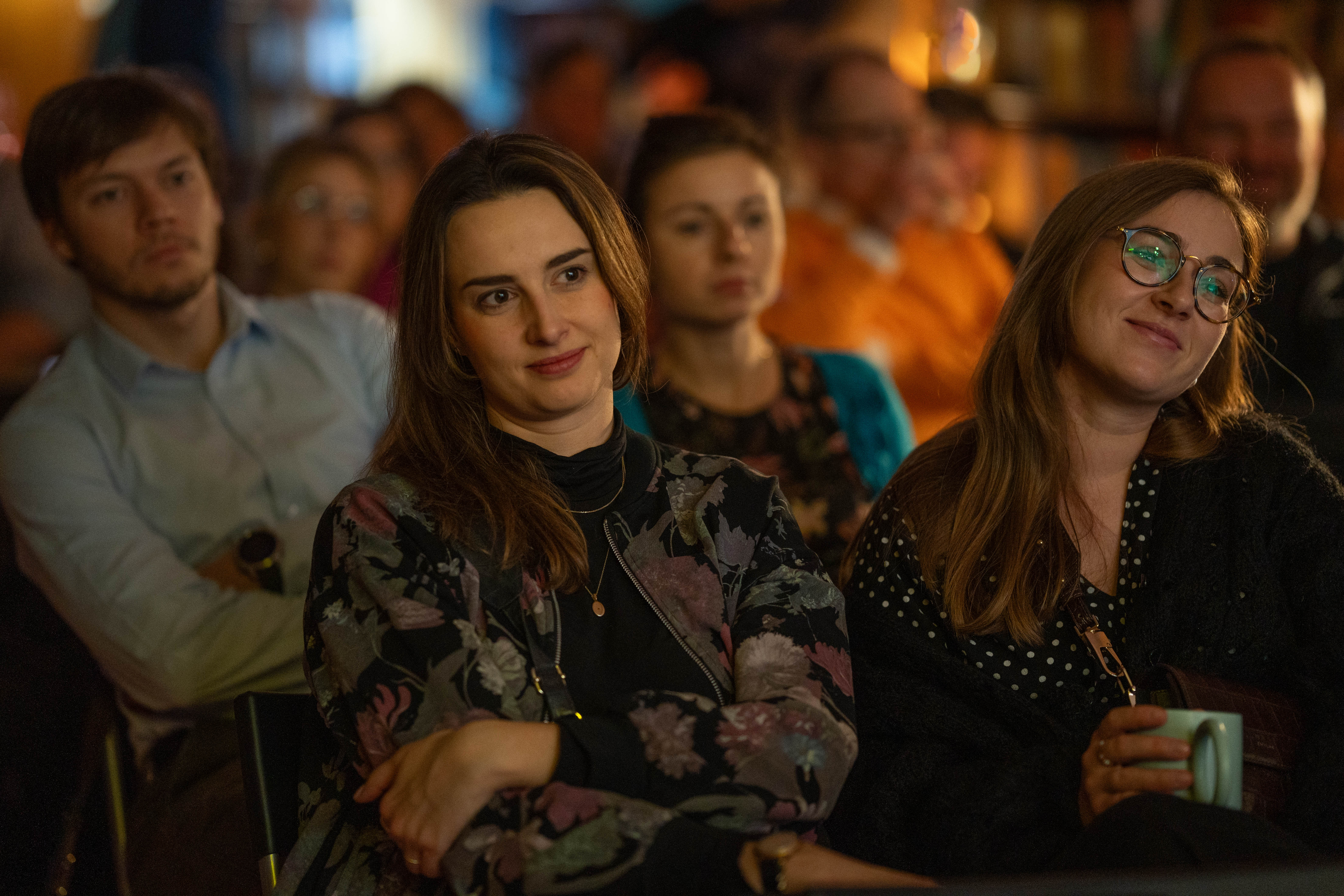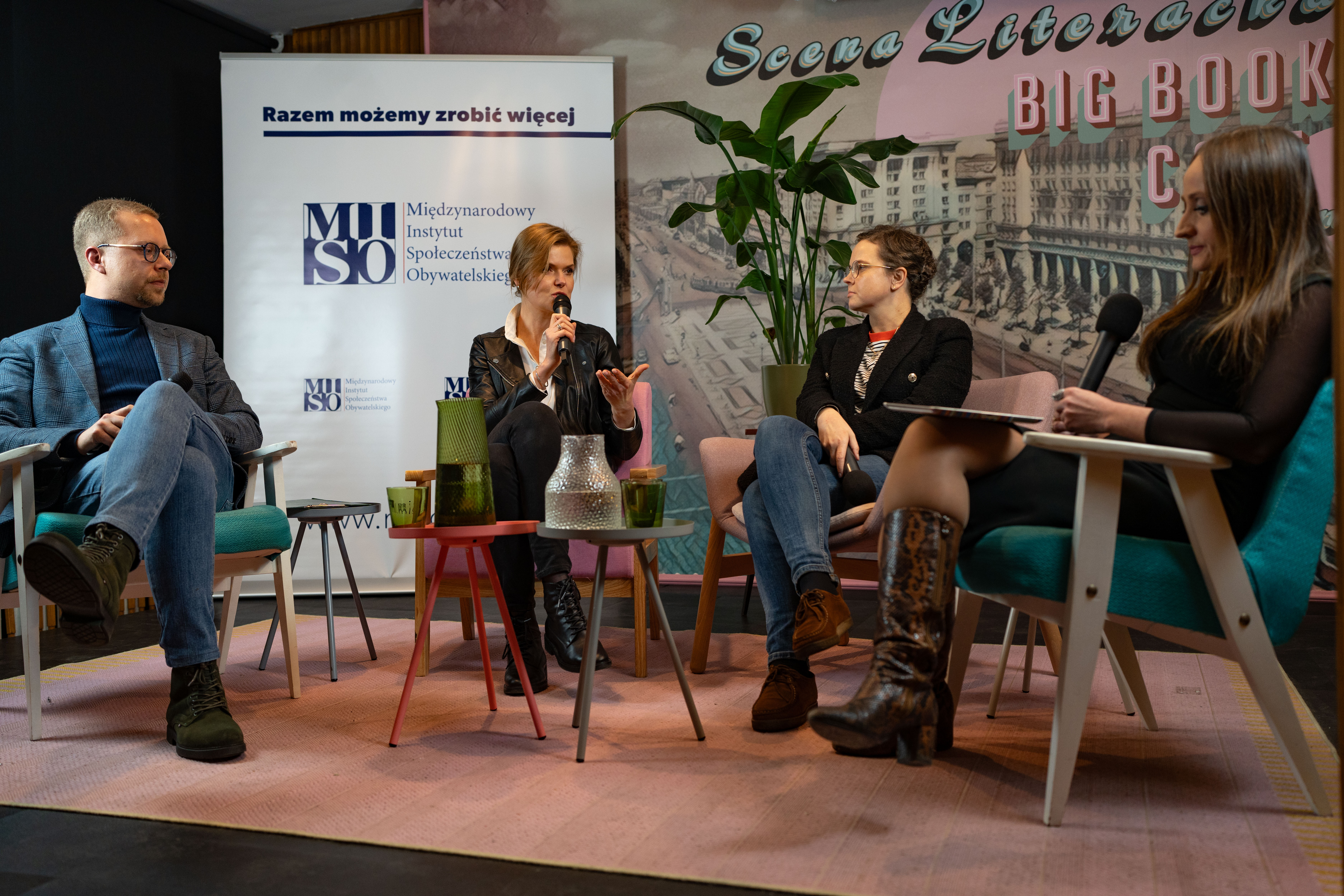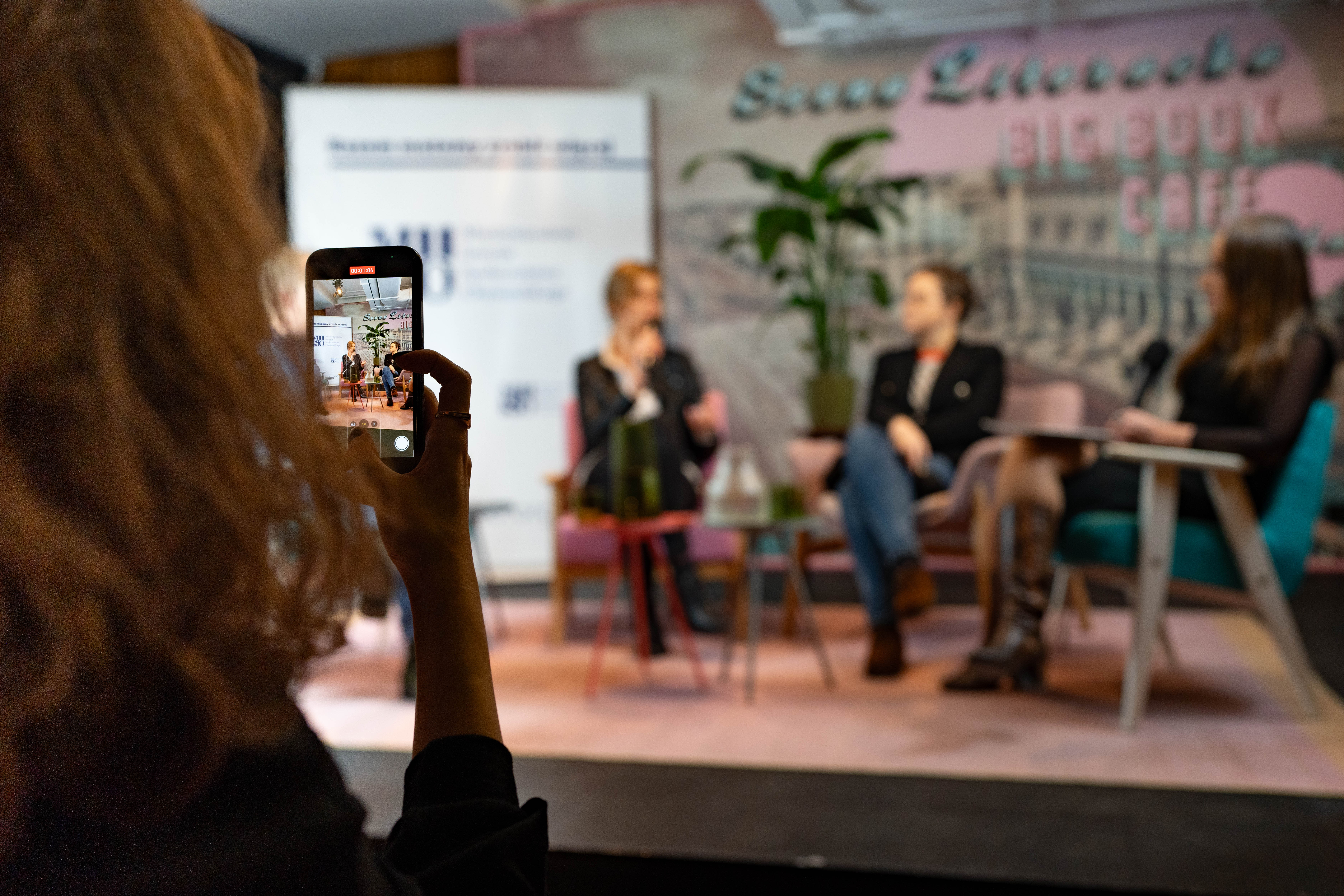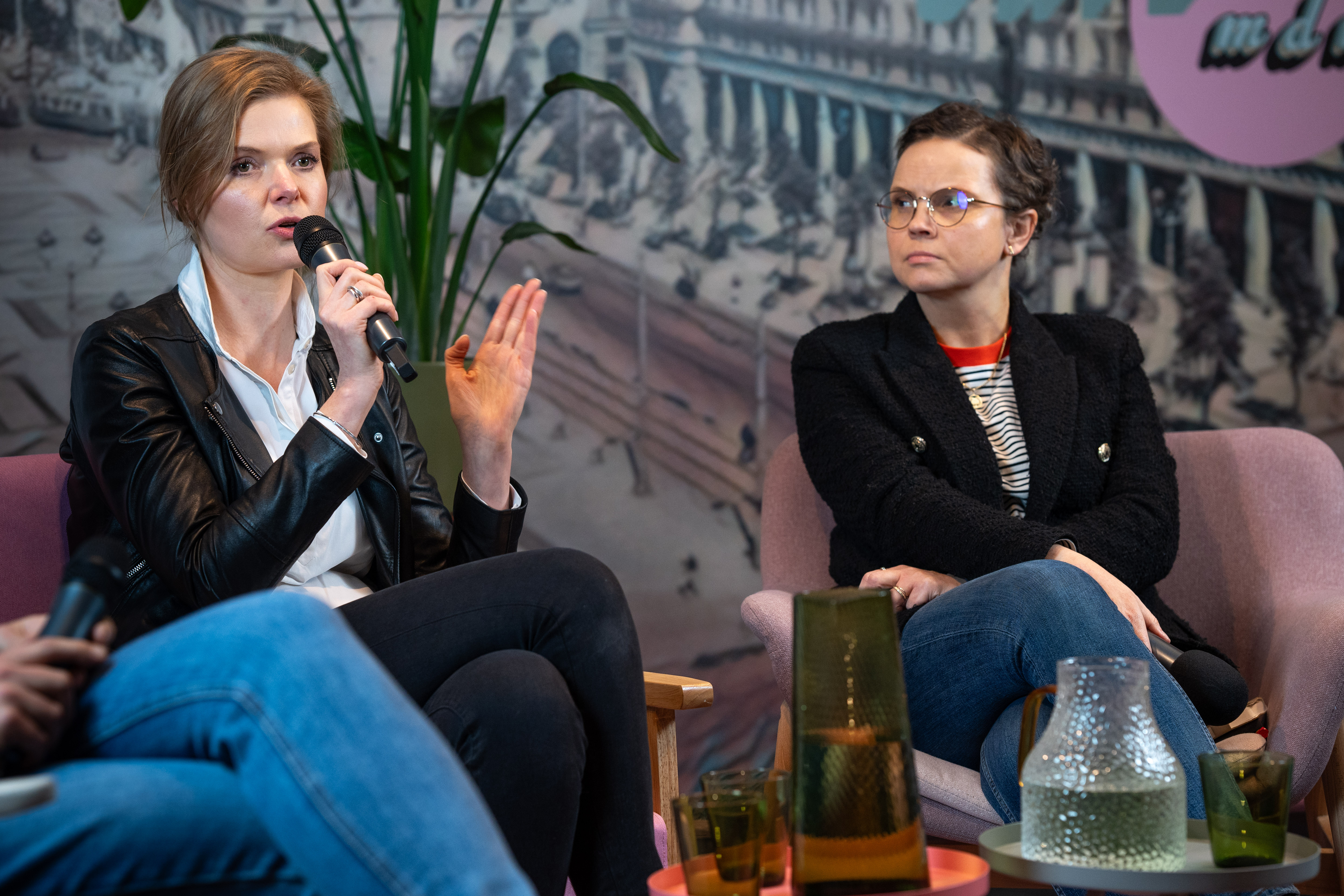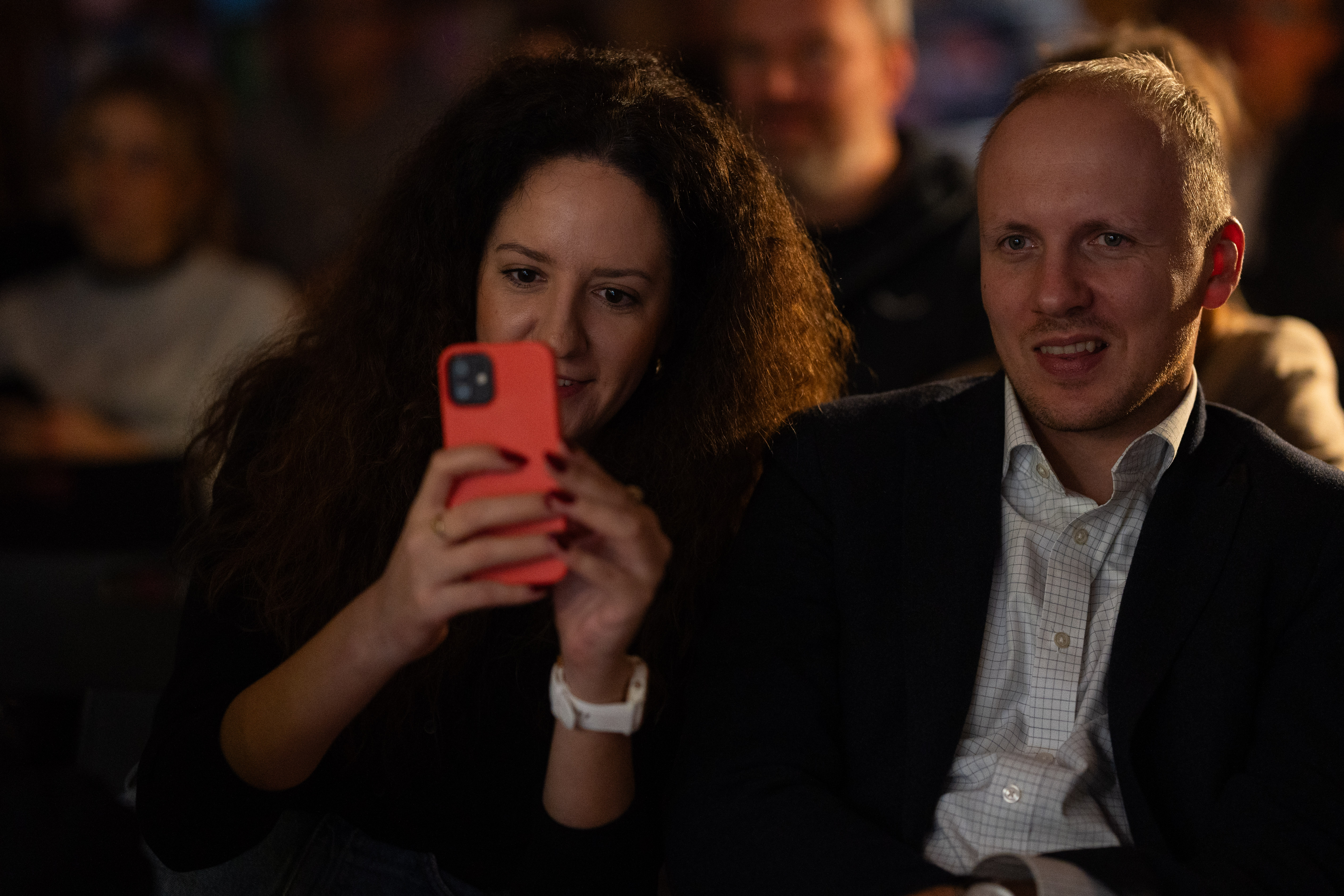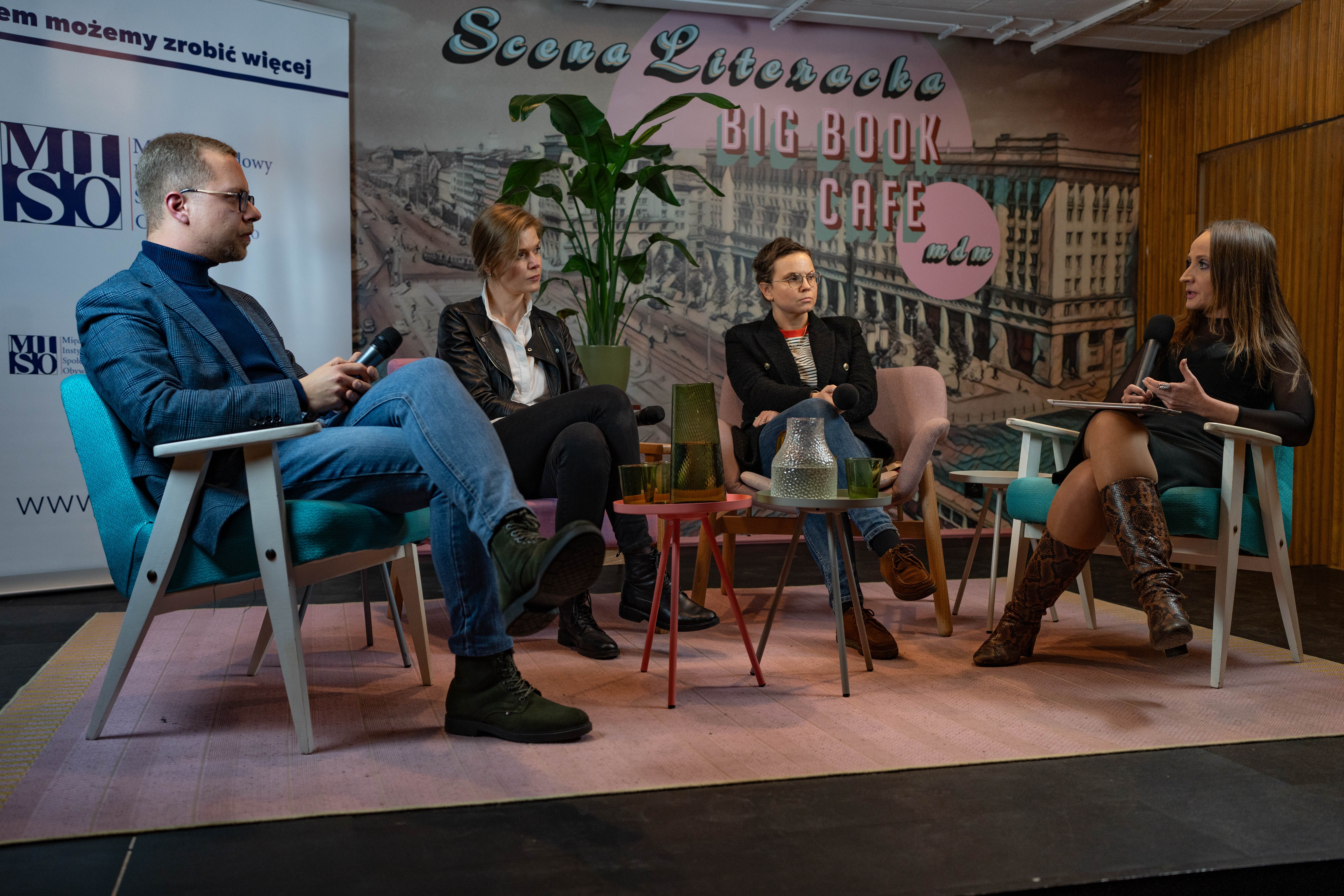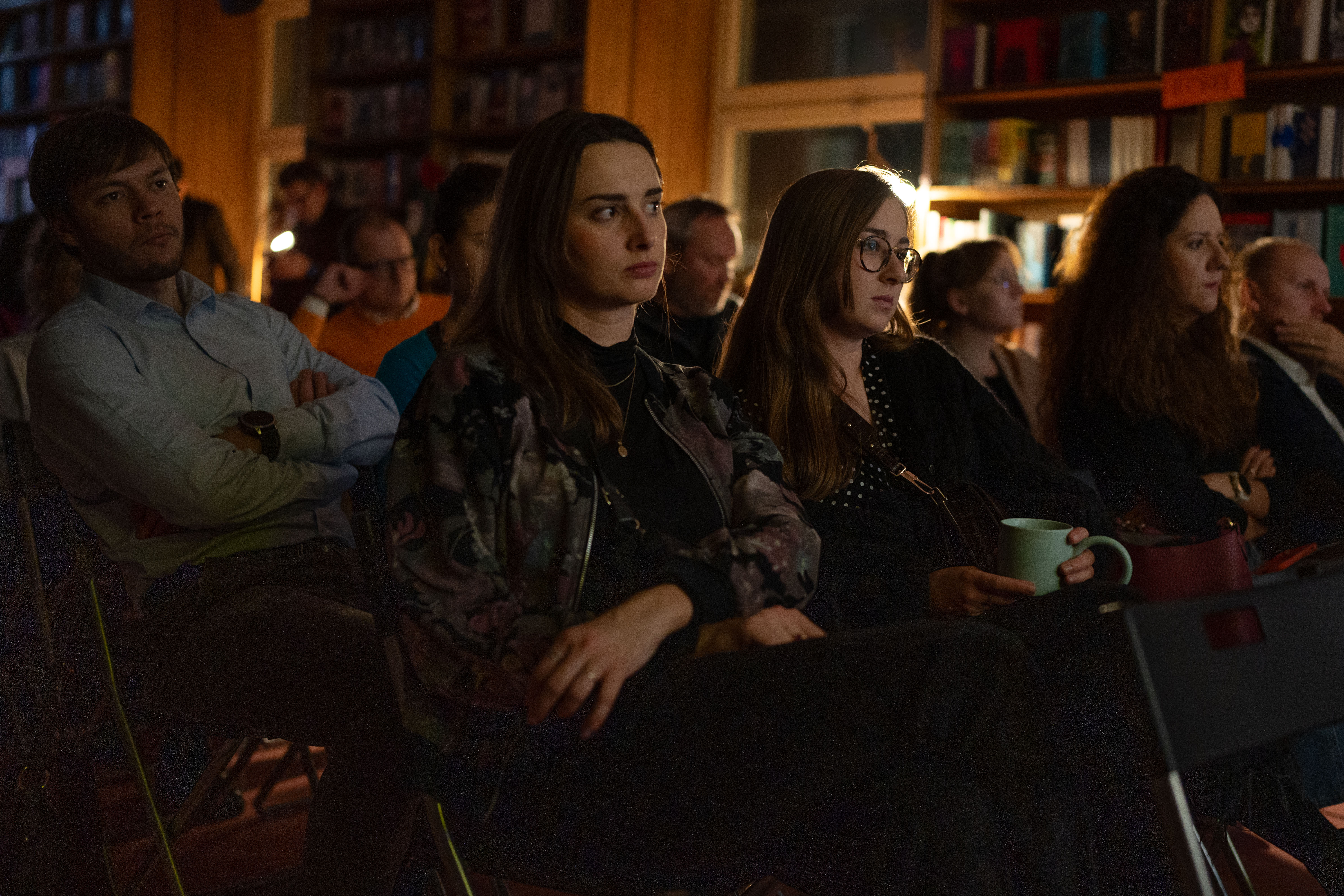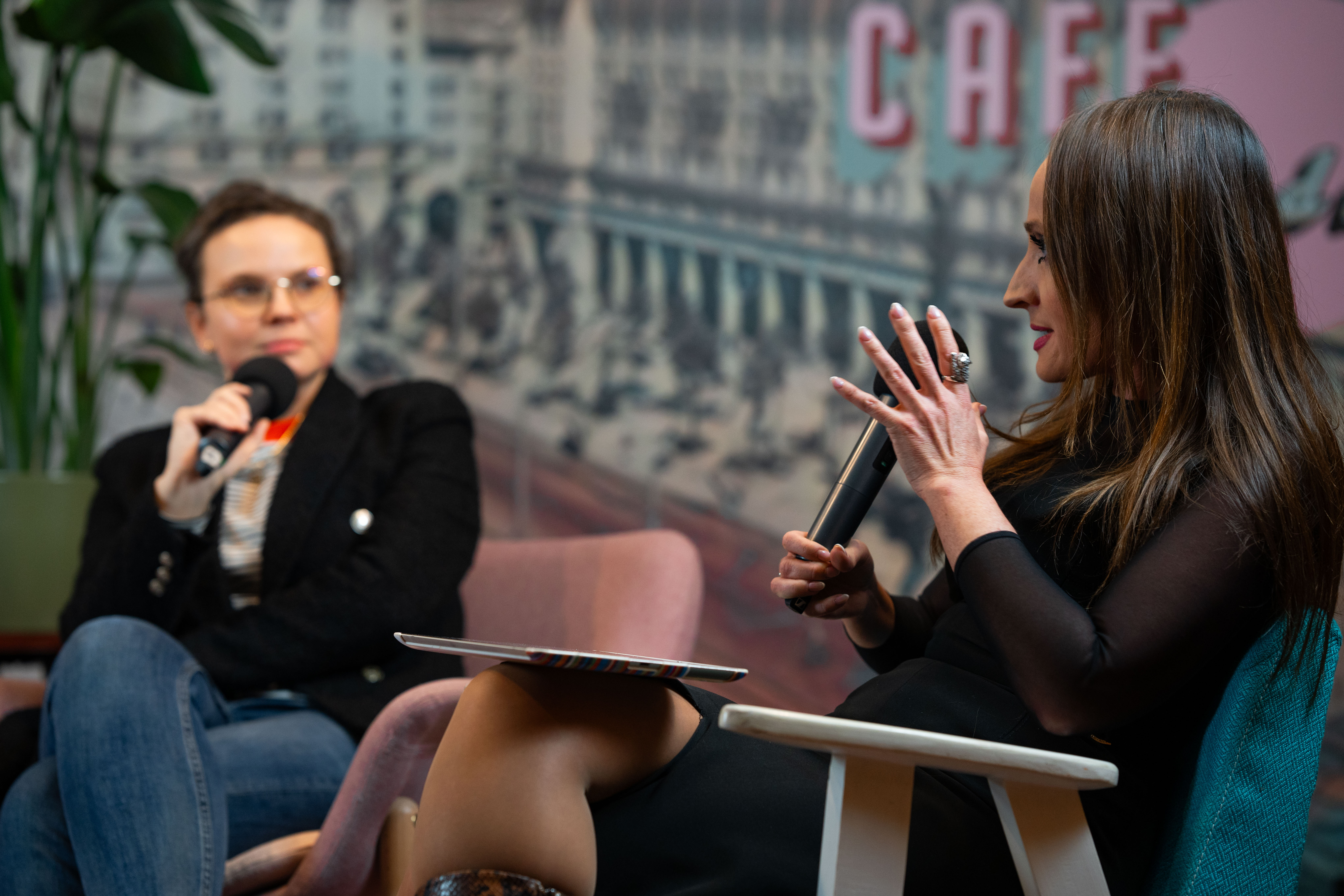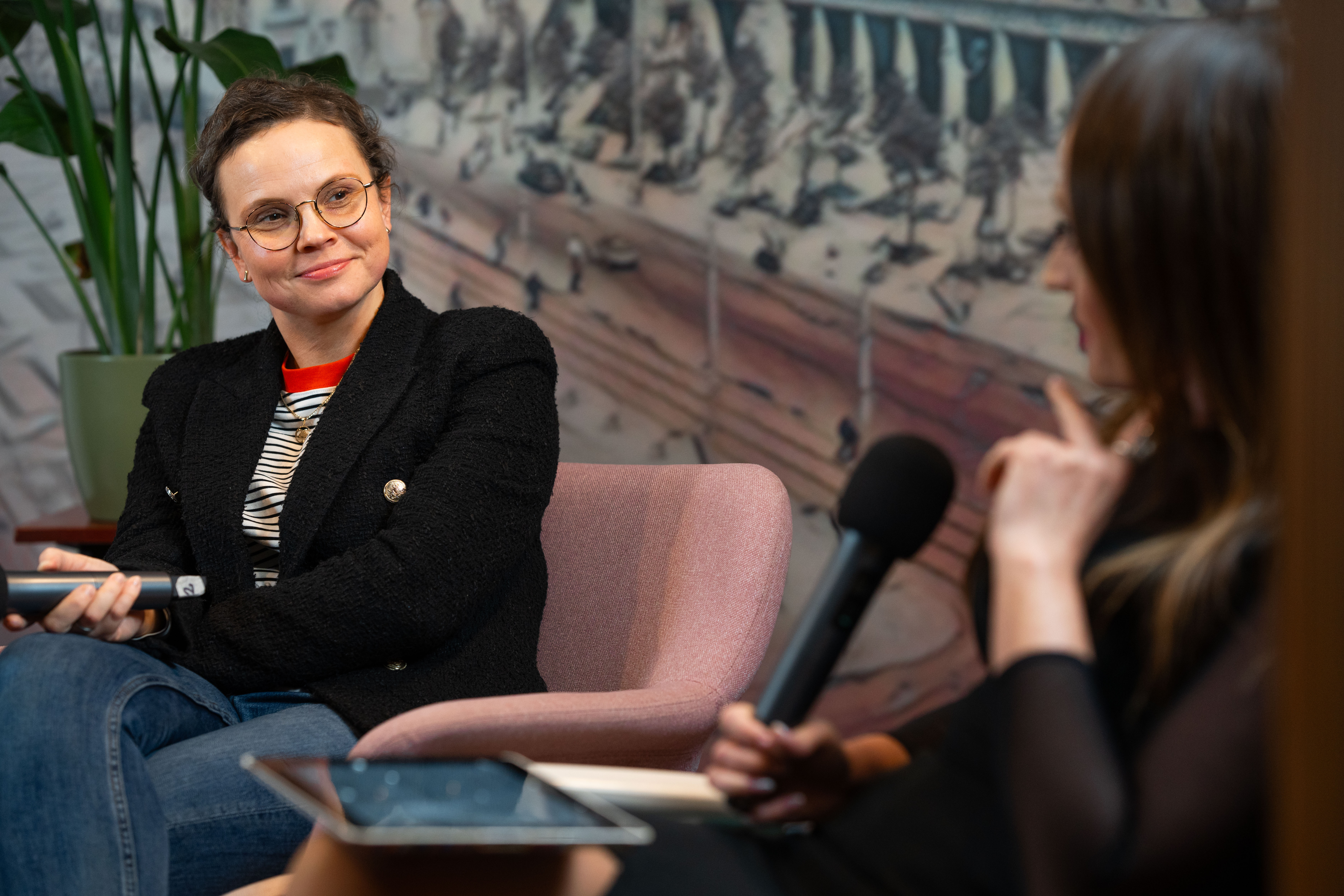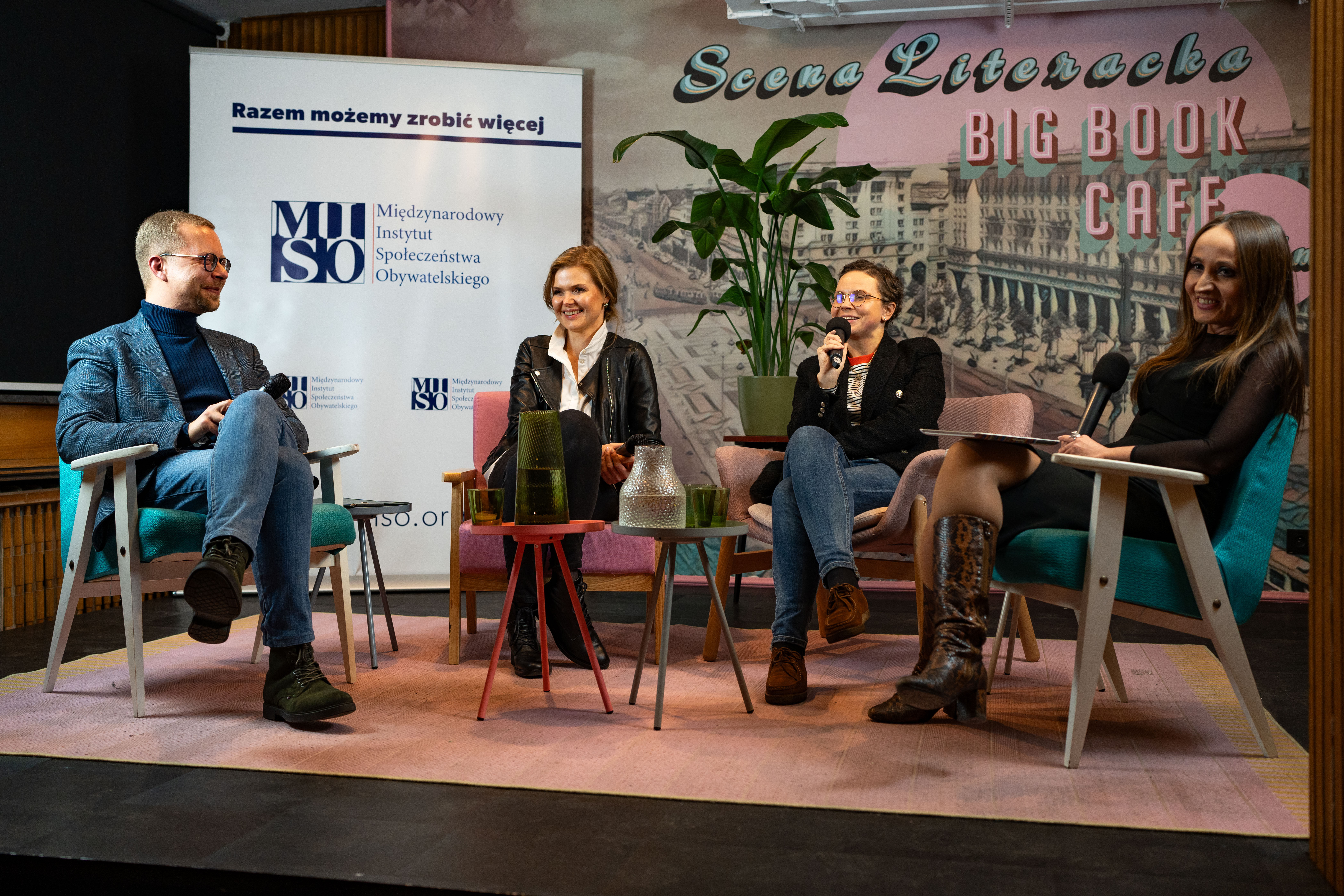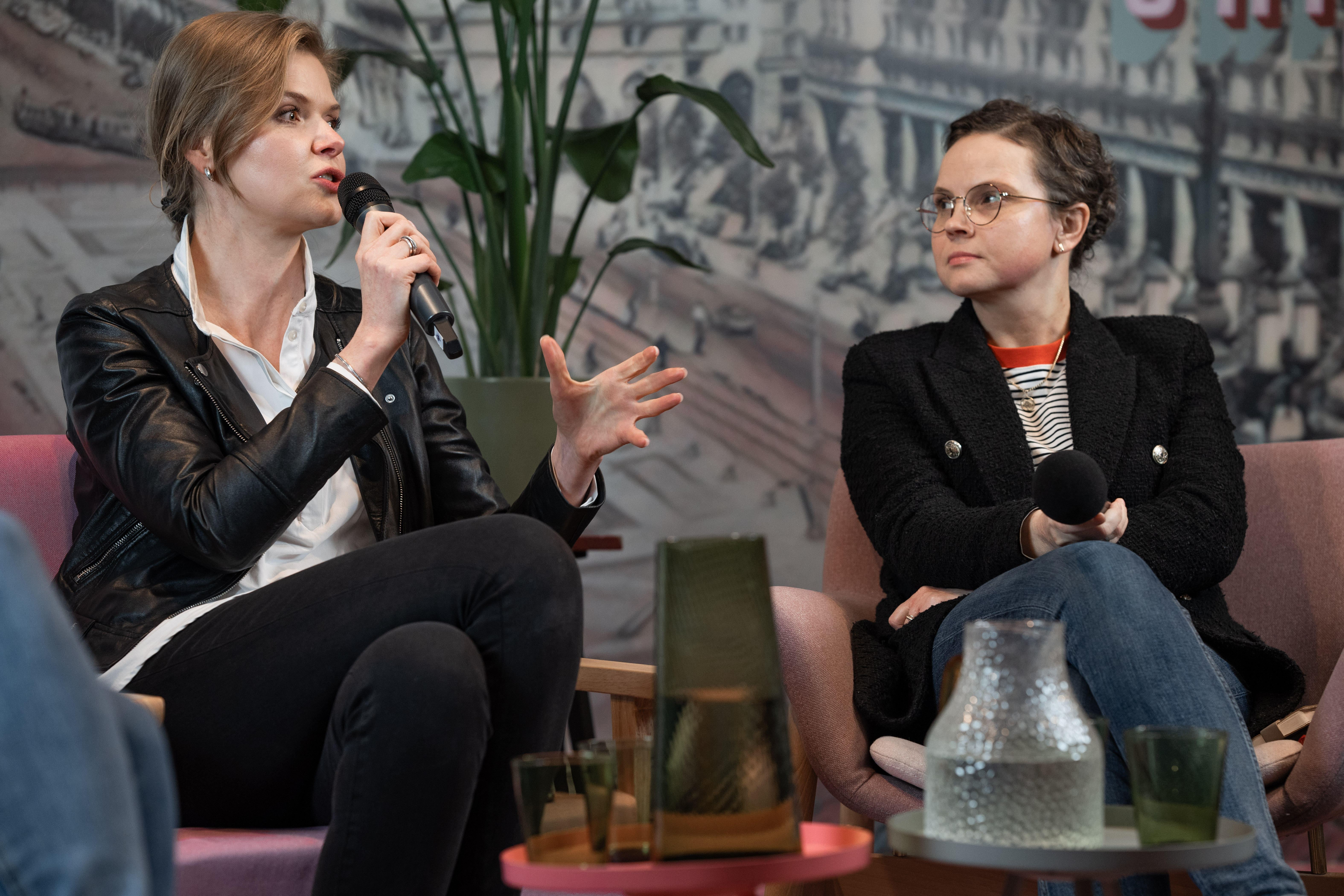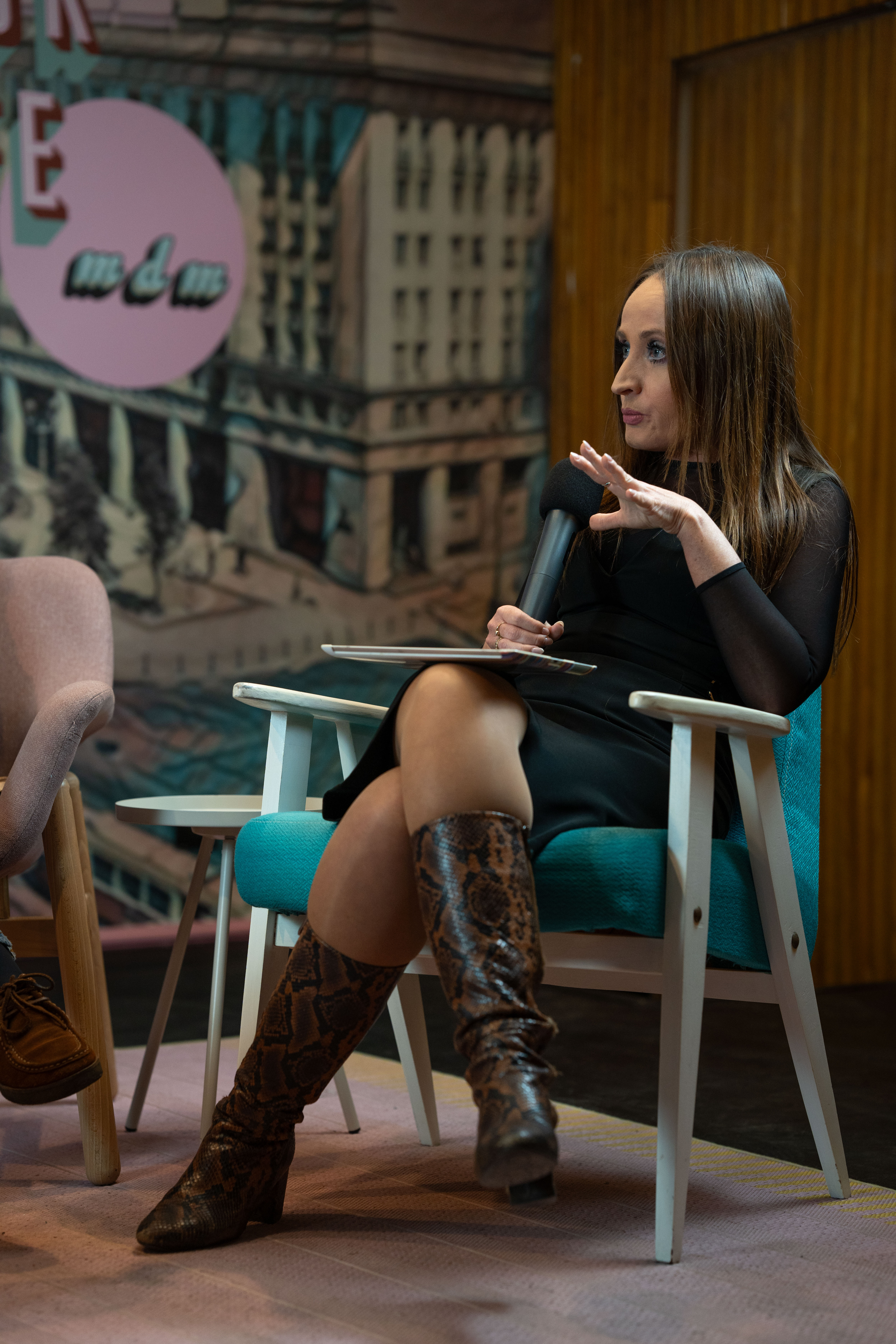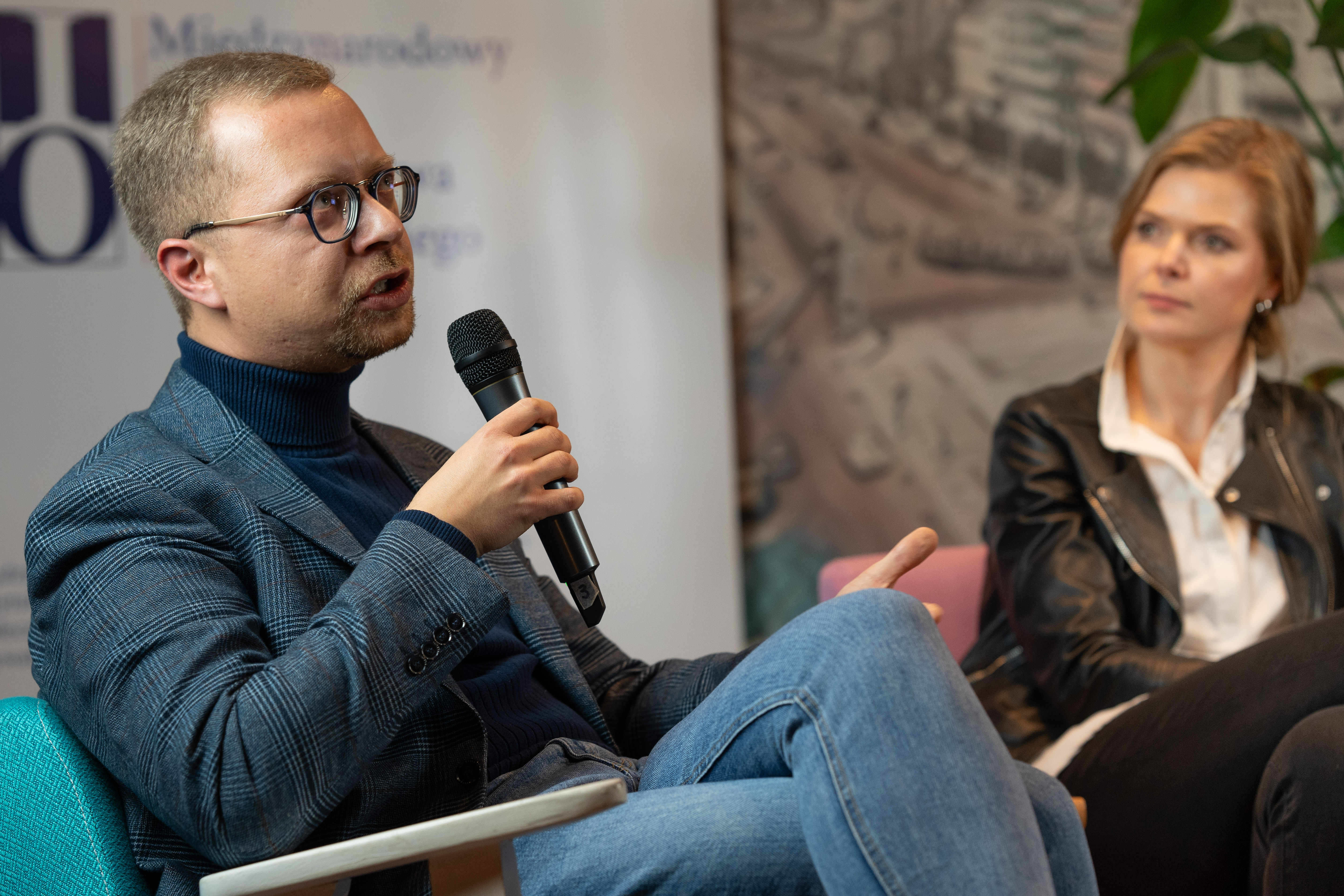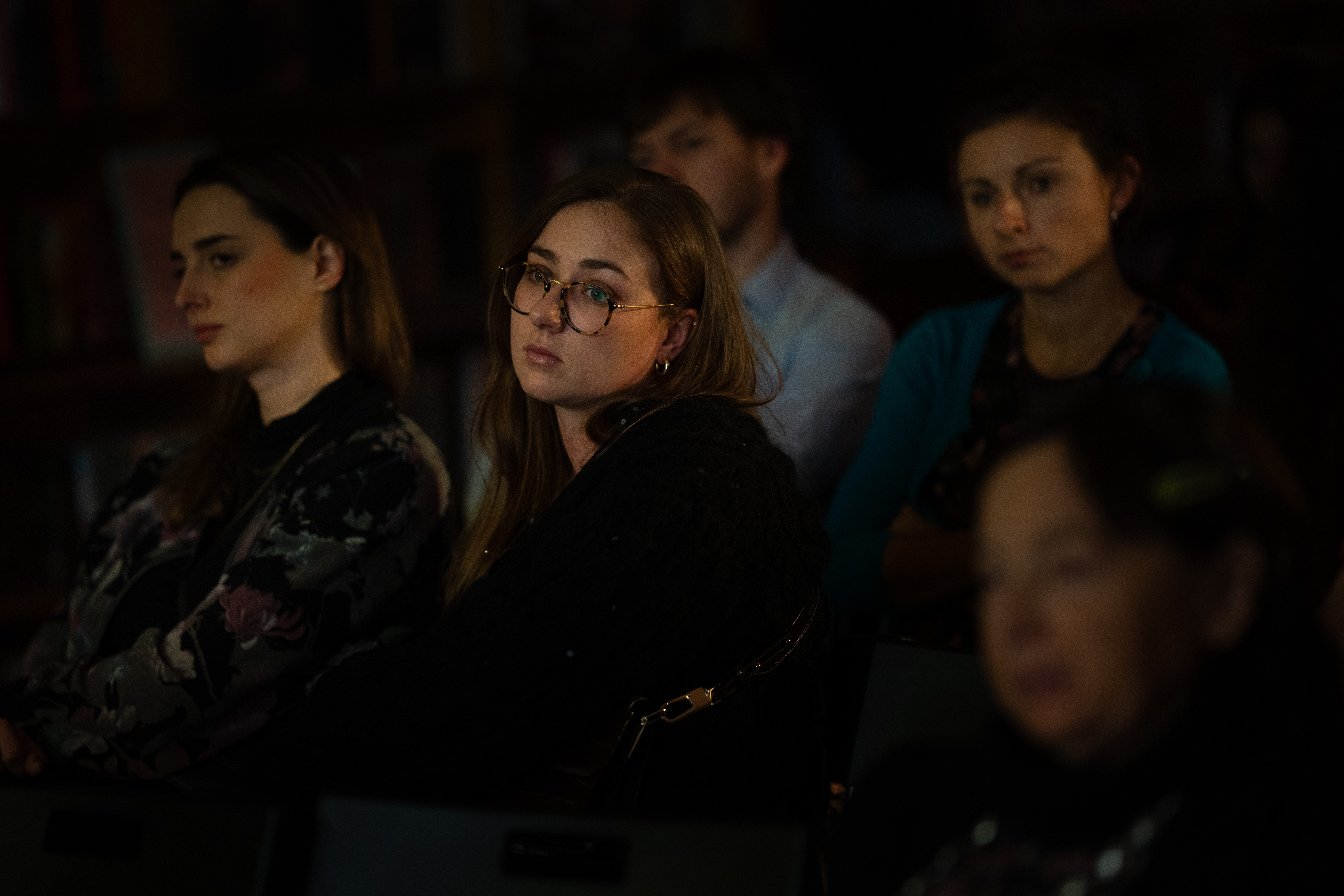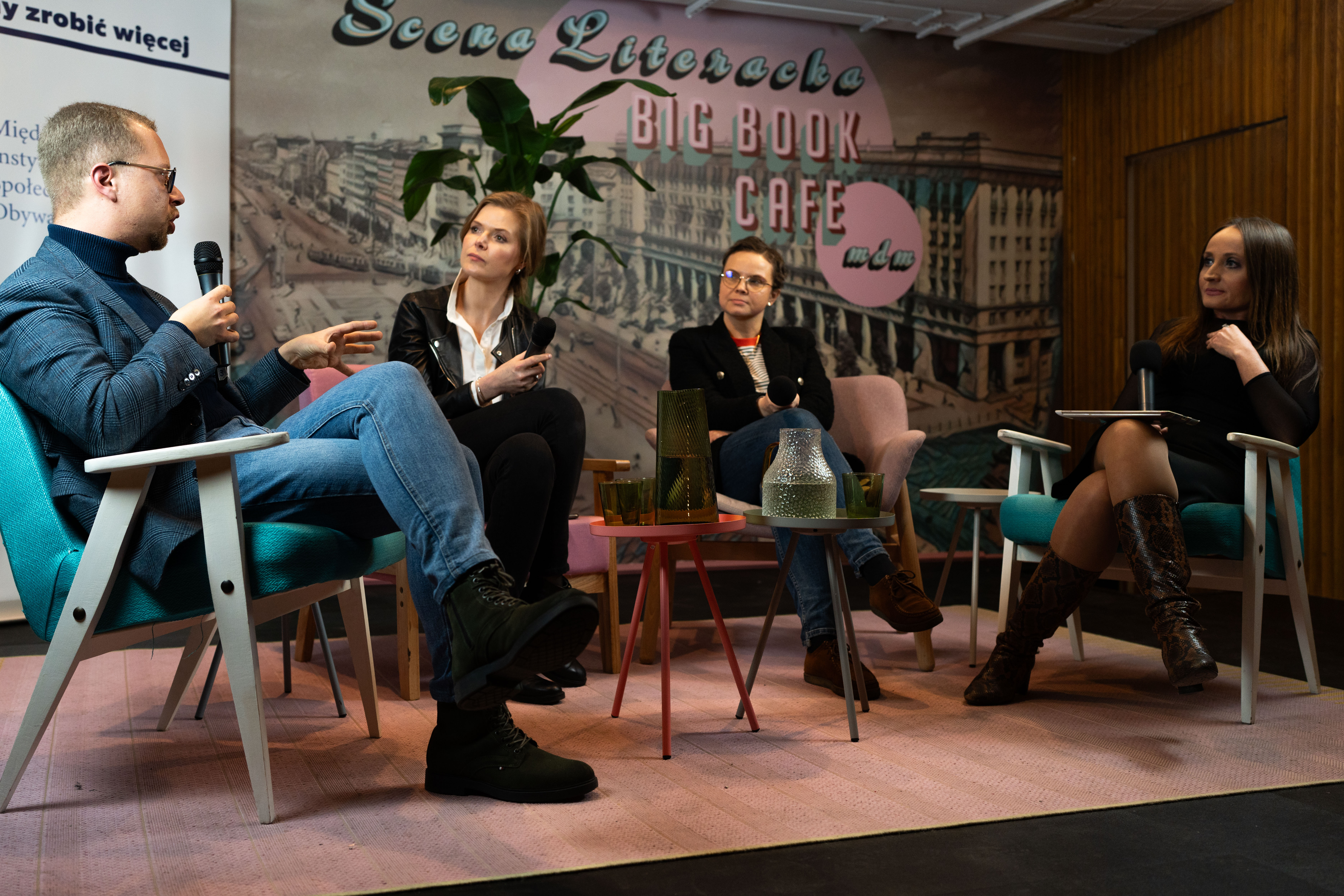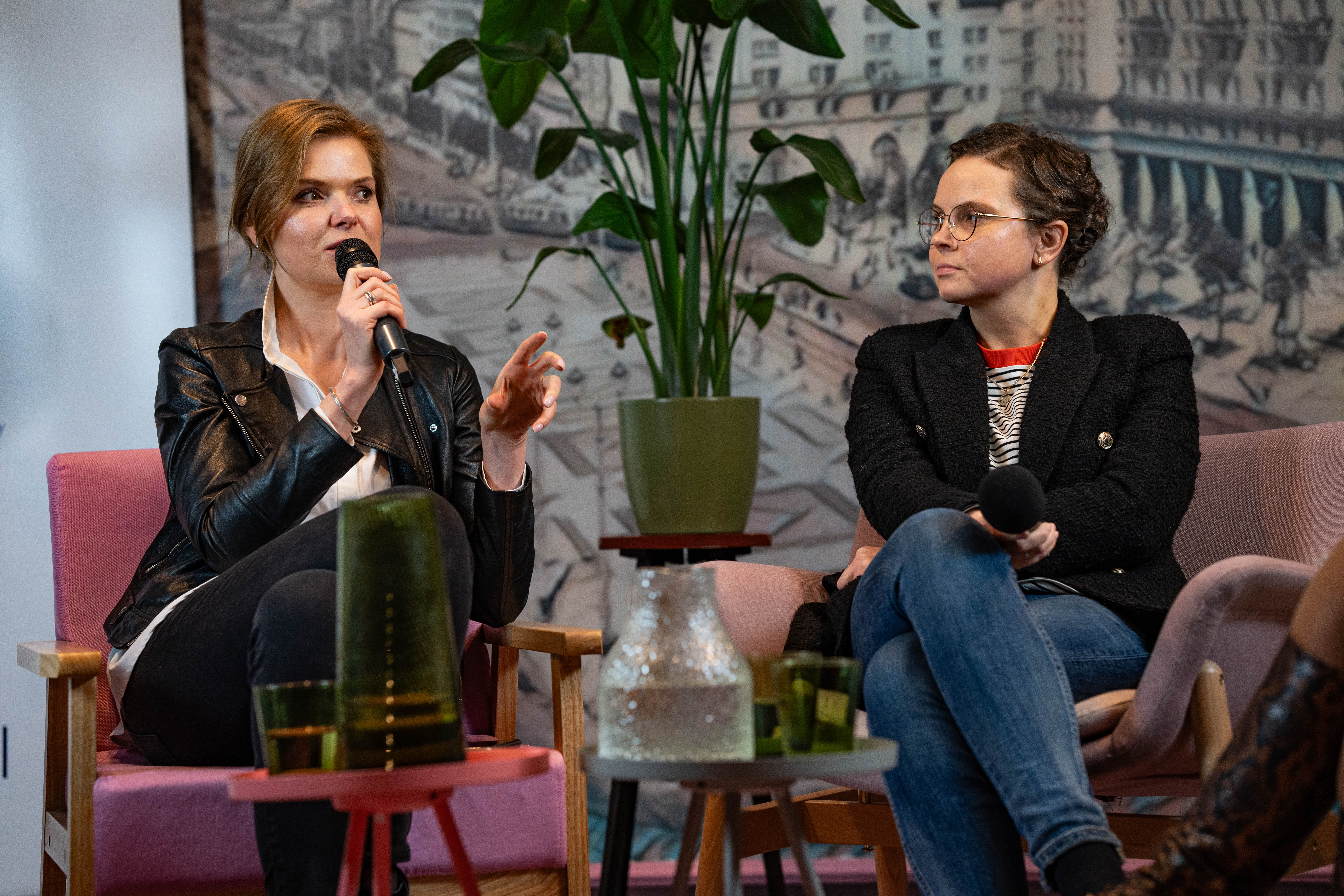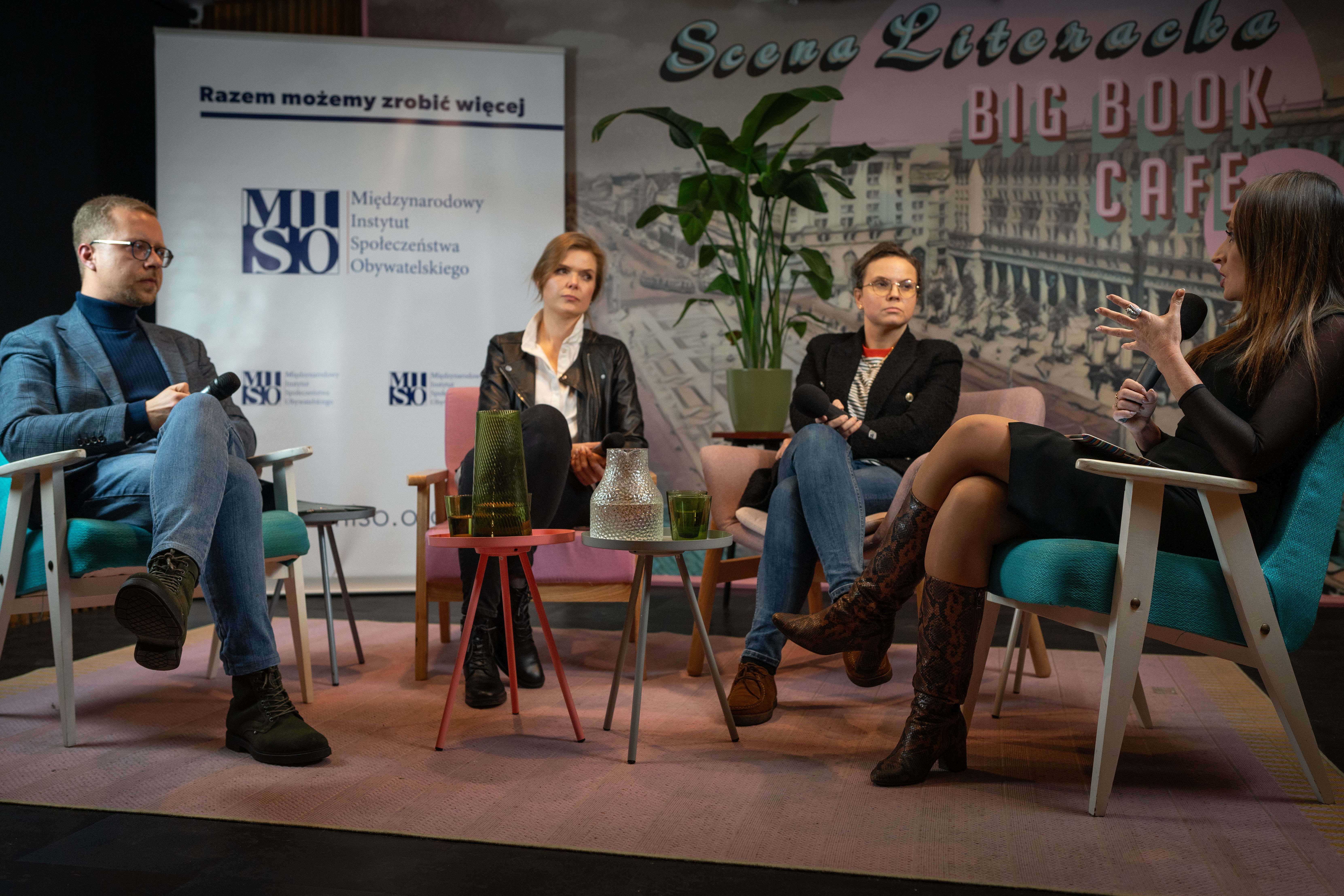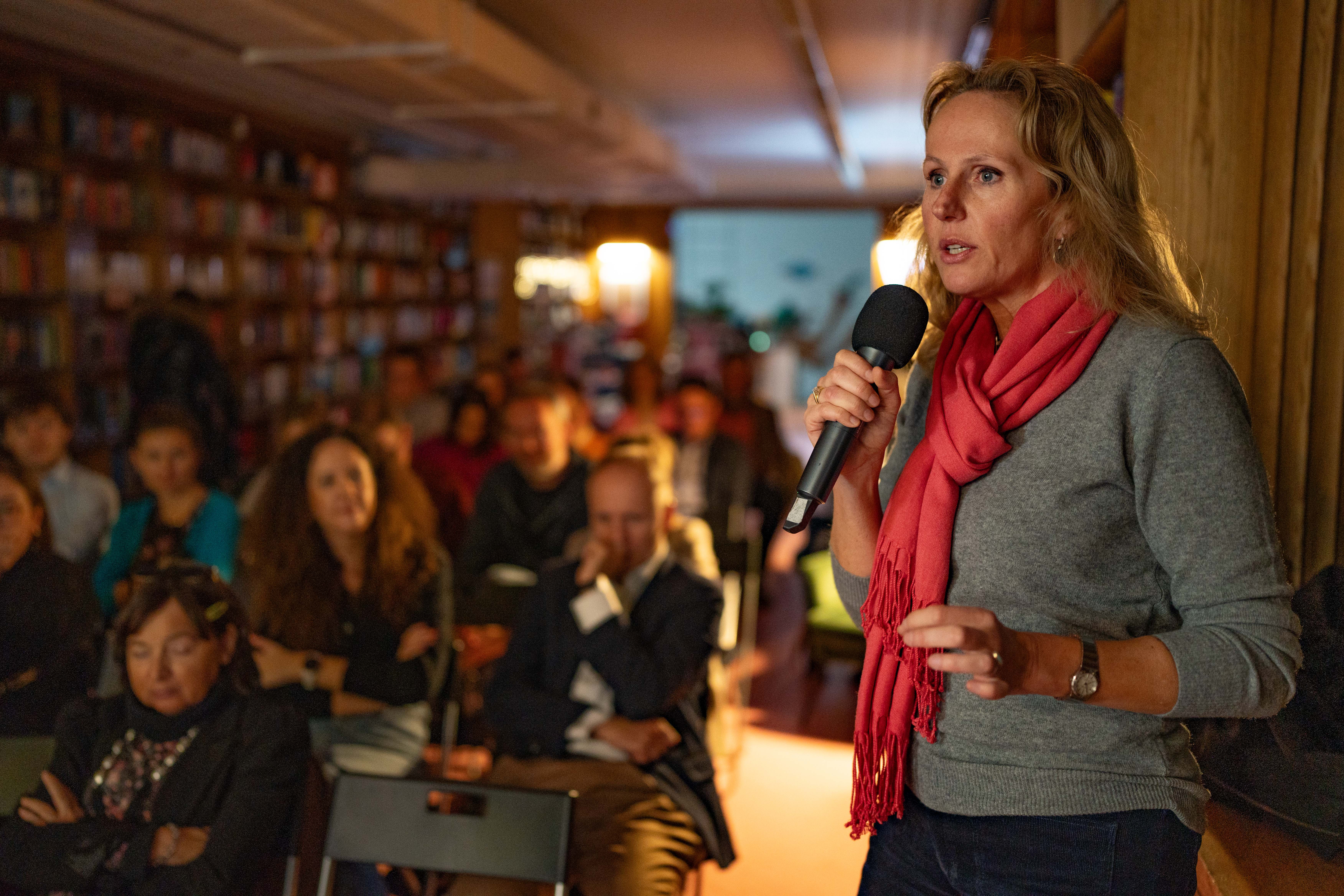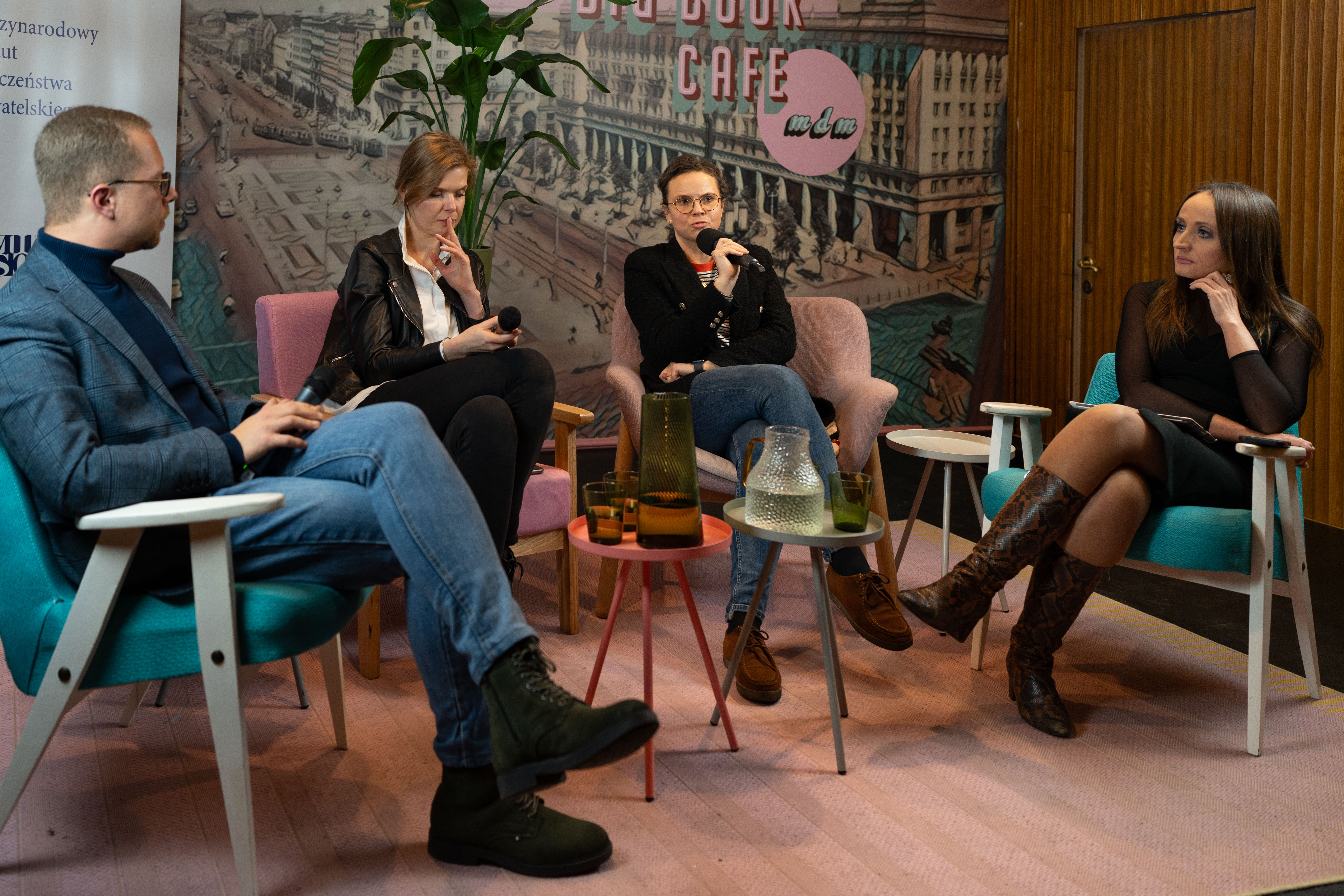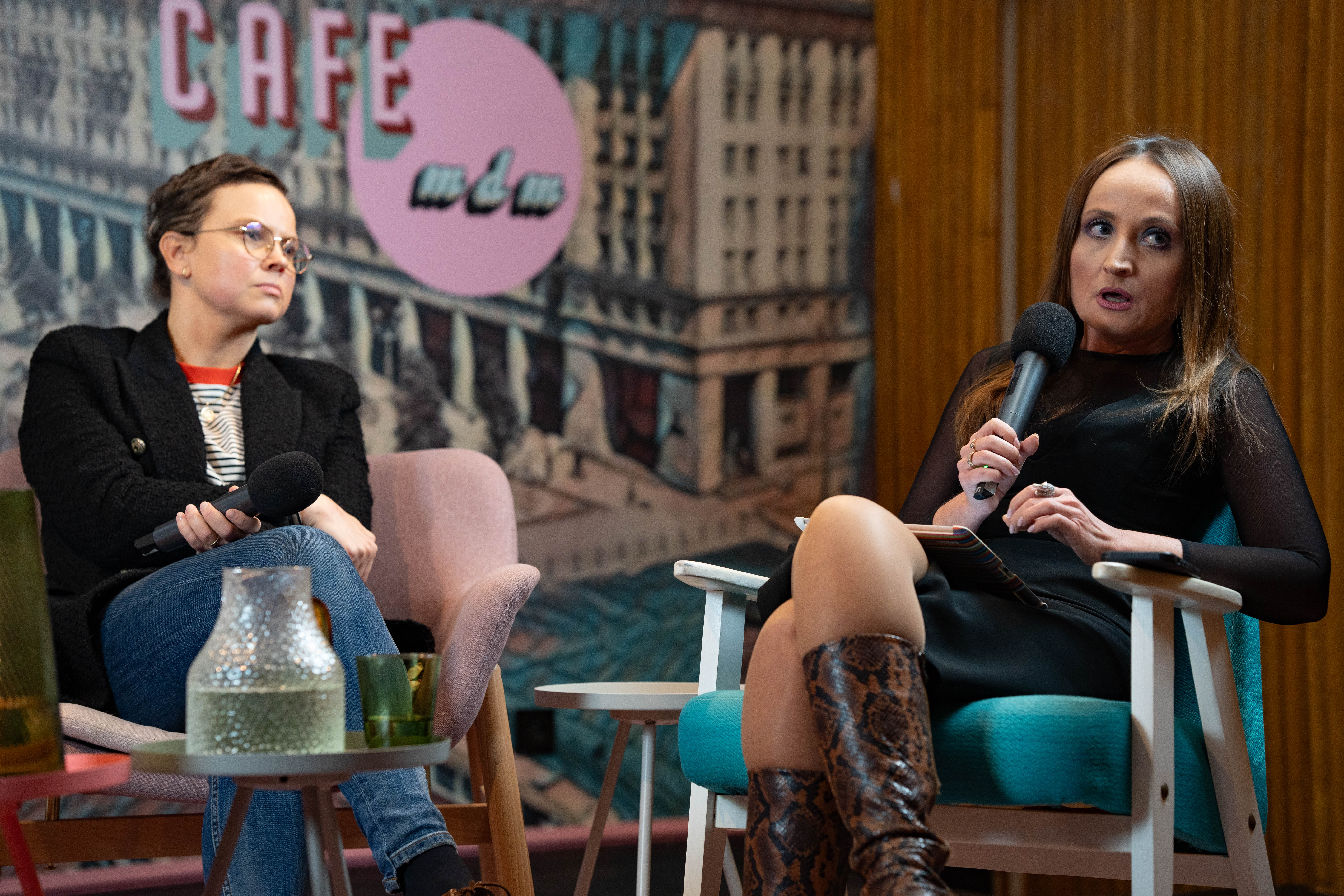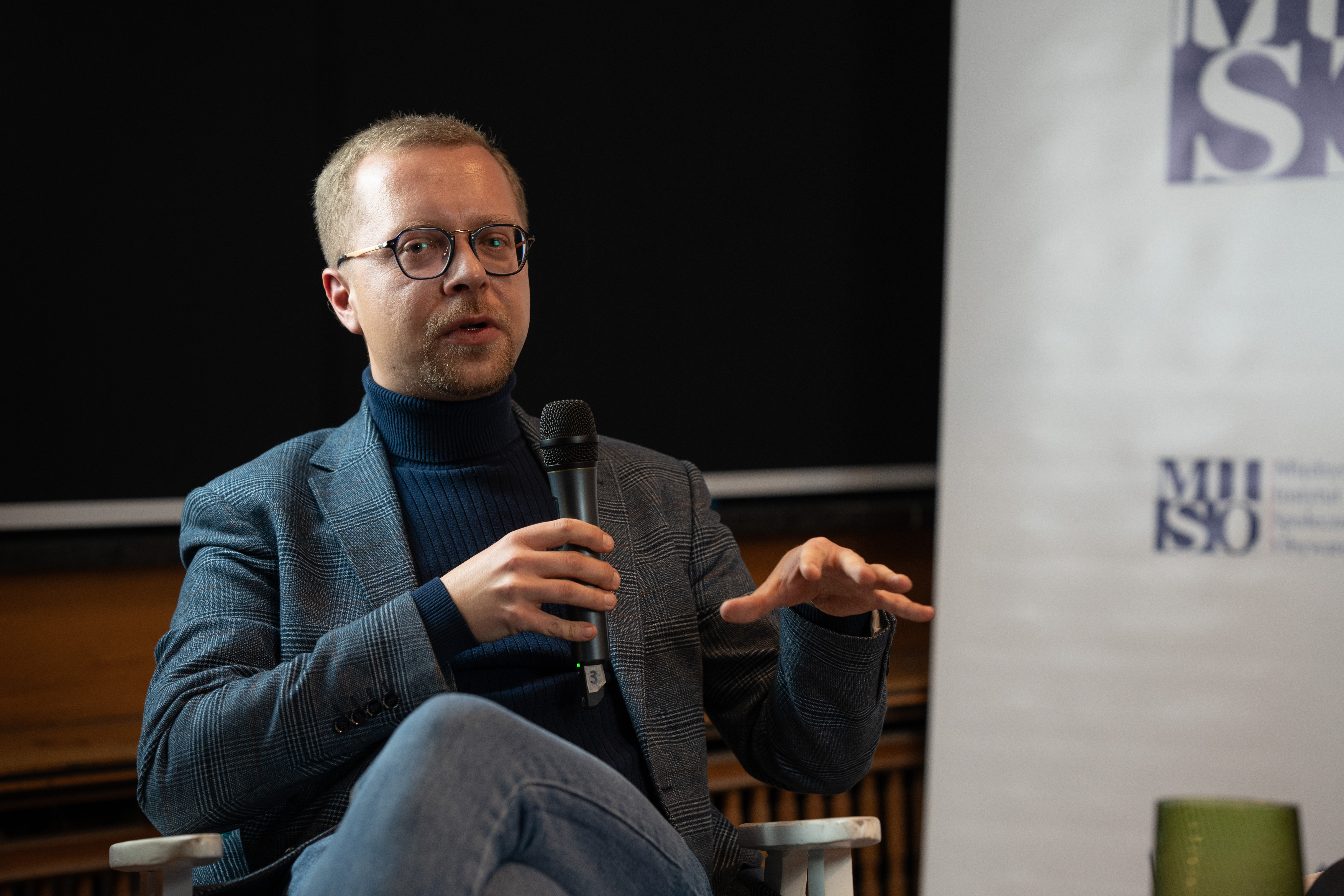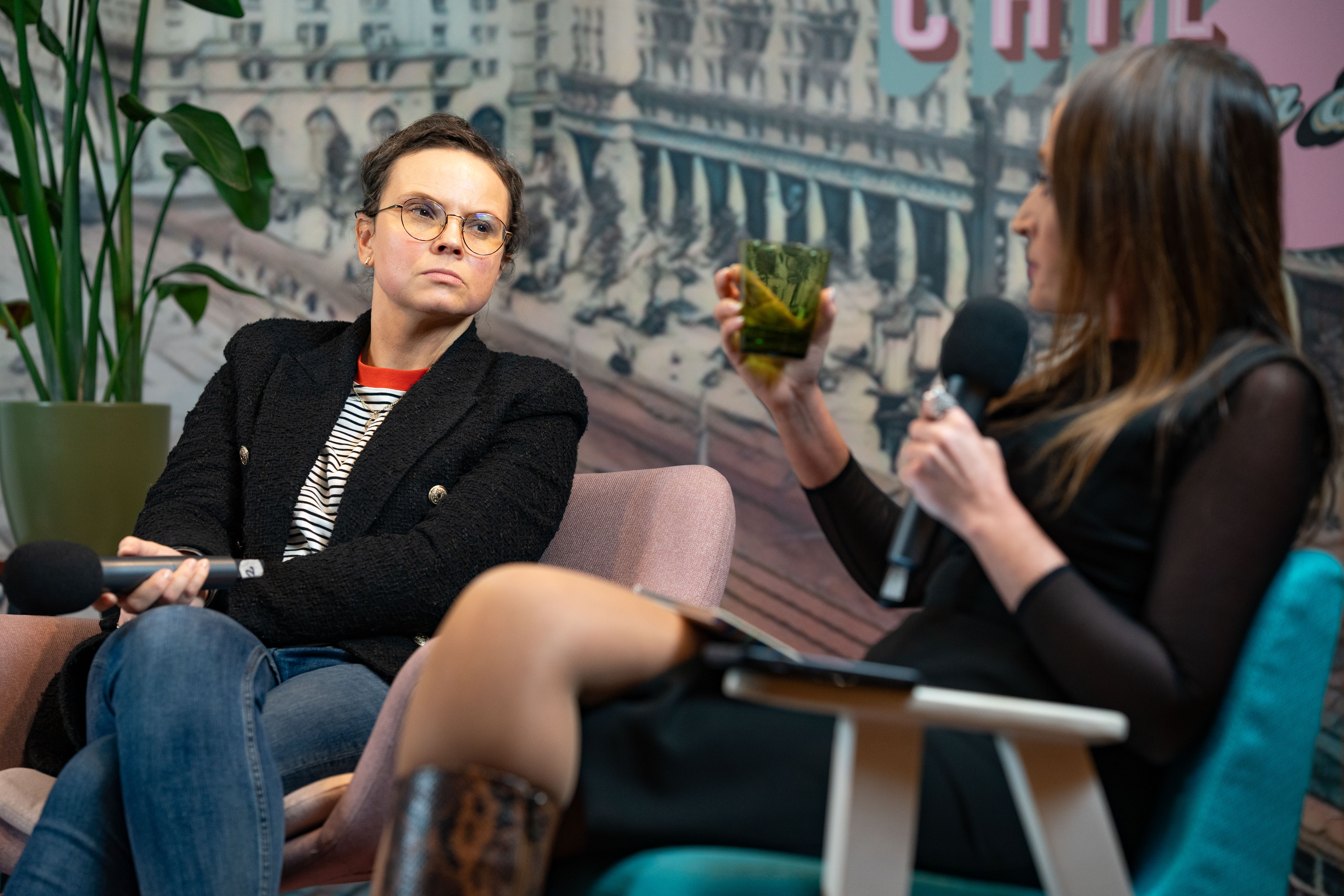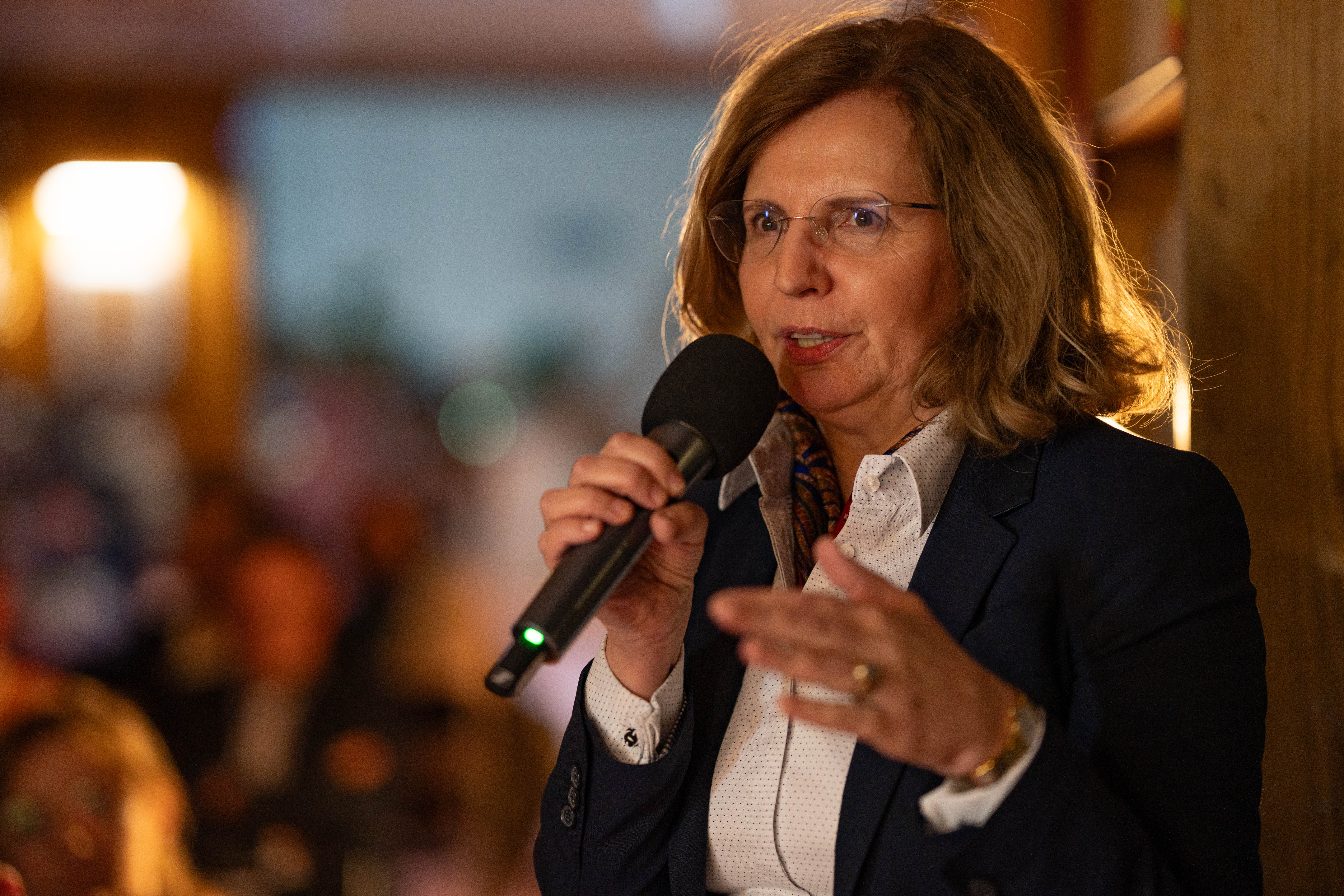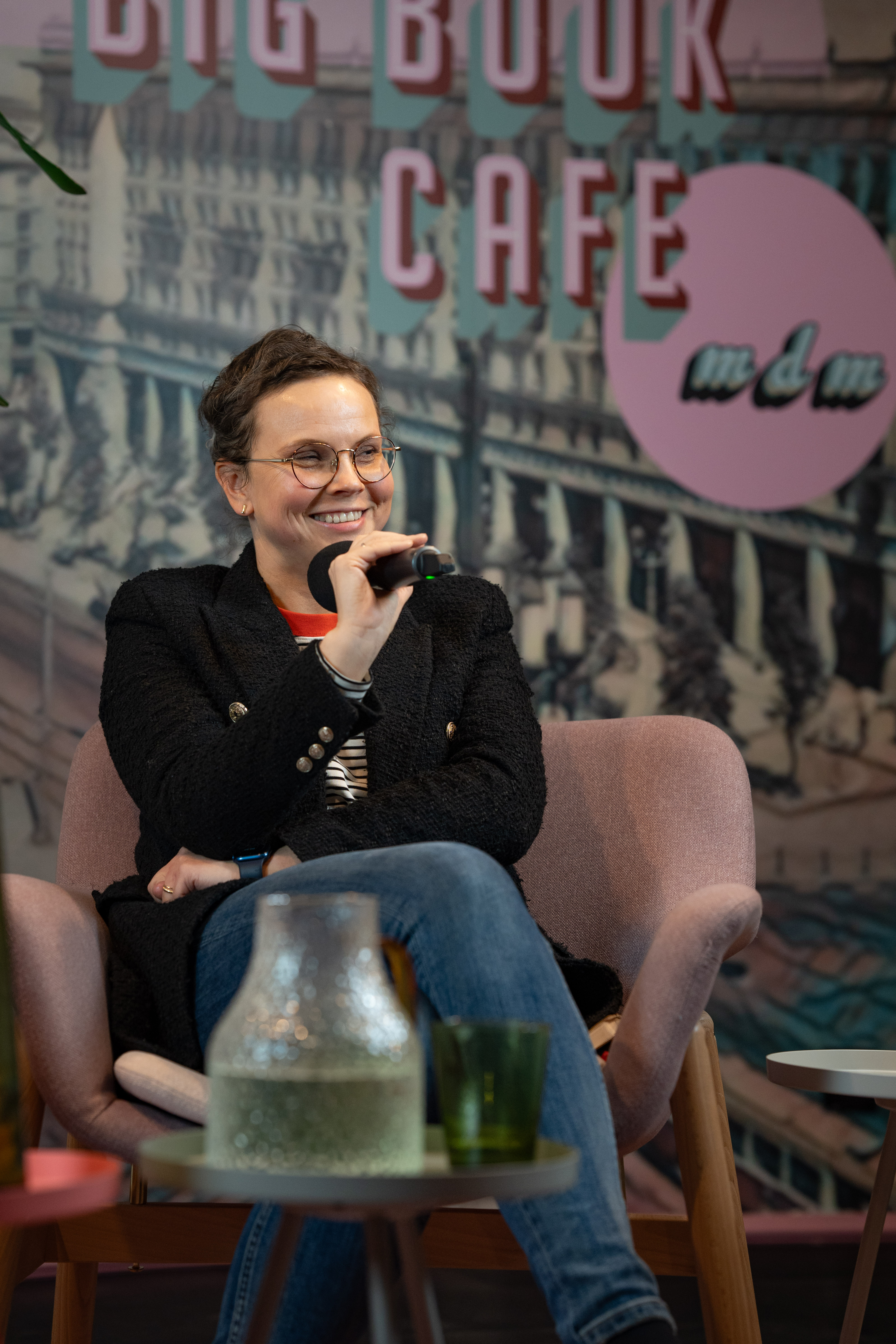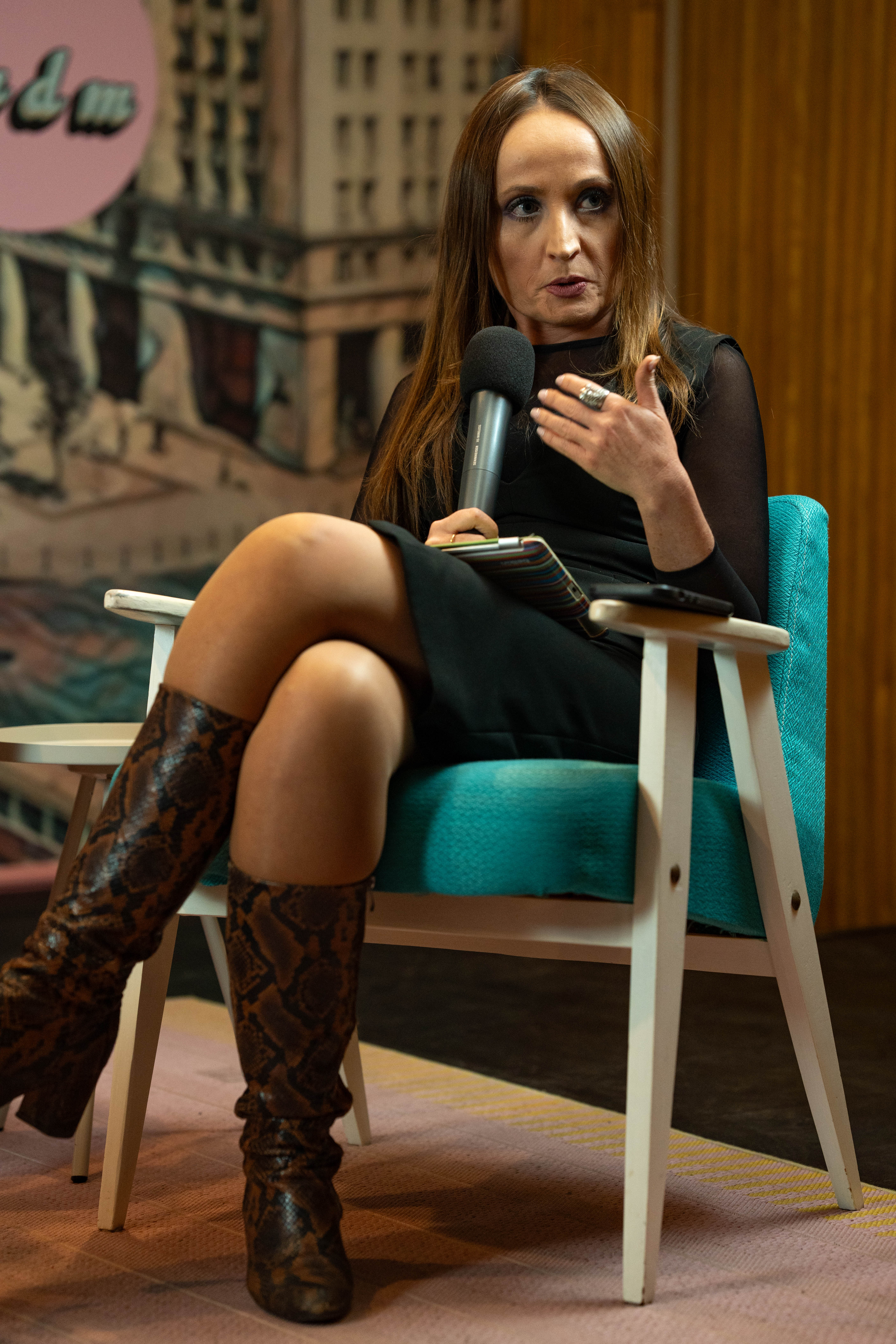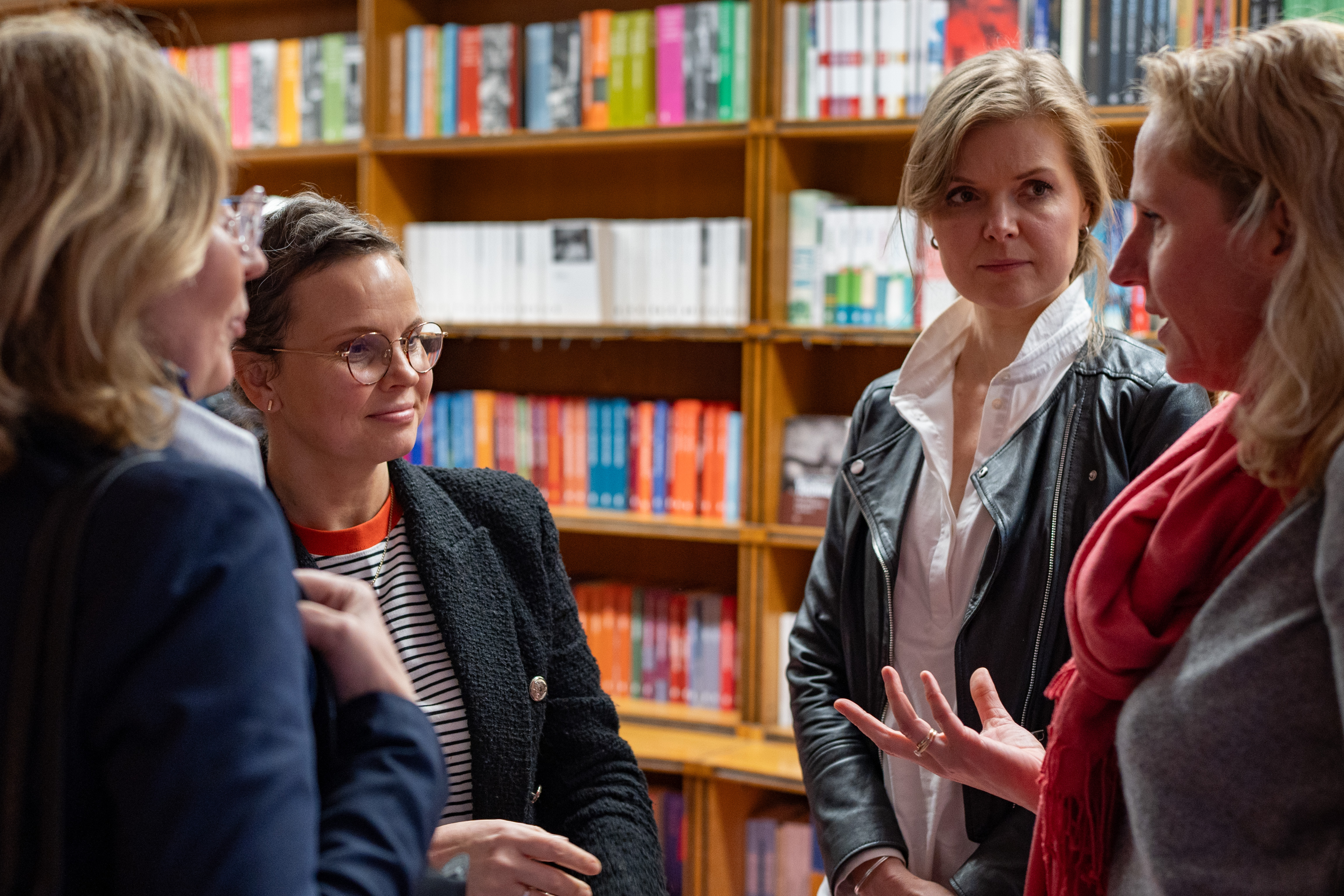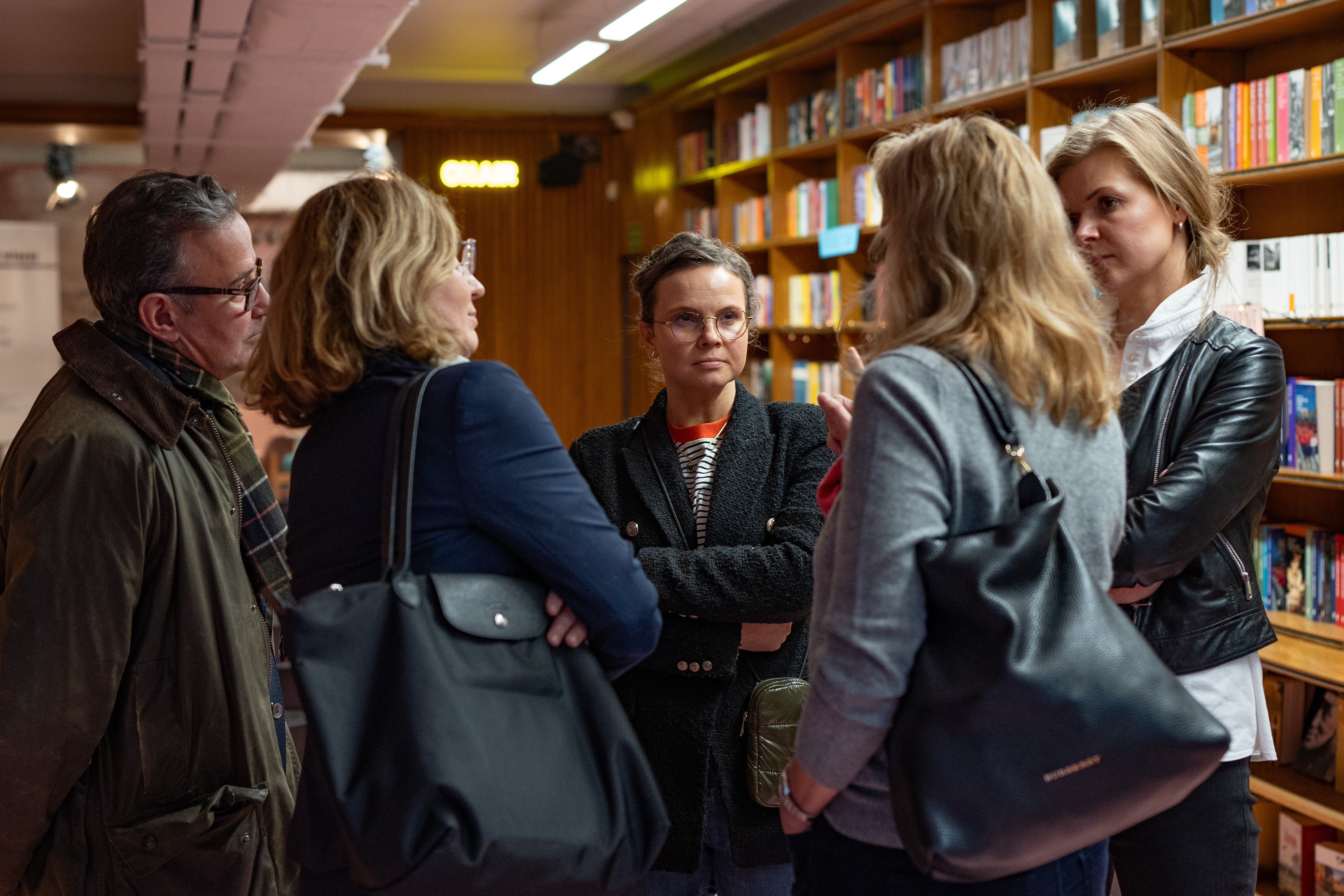DEBATE: “POLES AFTER THE ELECTIONS. WHAT TO DO WITH OUR ENERGY?”
The speakers in the debate included:
- Barbara Brodzińska-Mirowska - communication and policy researcher,
- Marcin Hinz - cultural anthropologist and social researcher,
- Wioletta Paprocka-Ślusarska - head of the electoral staff of the Civic Coalition.
The moderator of the debate was Justyna Dobrosz-Oracz, a political journalist and the parliamentary reporter for Gazeta Wyborcza.
The meeting began with a summary of the record-breaking election turnout, which surprised all Poles, starting from voters to members of election staffs. As Wioletta Paprocka-Ślusarska said, from today's point of view, the public agitation and the large presence of voters at meetings with candidates foreshadowed that the election turnout would be high. However, no one knew until the end what would happen. This is a huge success for society, the speaker admitted.
The high voter turnout surprised all opposition parties. This is a big responsibility for all of us, because people who had never taken part in the elections before voted in those elections, the society expects responsibility not only from politicians, but also from experts,” Wioletta Paprocka-Ślusarska continued.
Justyna Dobrosz-Oracz, who chaired the meeting, asked the participants of the discussion where the organic strength of the civil society came from, wondering whether the record election turnout was a one-time spurt or a good prognosis for the future.
In response to this question, Barbara Brodzińska-Mirowska said that in recent years public involvement and civic activism had been evident, mentioning the protests in defense of the Constitutional Court, or in defense of women's rights, among others. So far, Poland had been mentioned in one line with Hungary or Turkey, perhaps now it would set an example for other countries with populist inclinations. In her view, the civil society had not been broken, as in the case of Hungary. Many players proved to have risen to the occasion, including the social media, the pro-frequency campaigns they ran, as well as NGOs and journalists, the researcher said.
Marcin Hinz, a social researcher and co-author of the report “Elections, the media and their impact on the attitudes of Poles,” said that an interesting phenomenon is the voter turnout in recent parliamentary elections between elections. In total, for 8 years, voter turnout has increased by 24 percentage points.
Justyna Dobrosz-Oracz asked the panelists about how to ensure that the electoral energy would not be wasted, saying that some voters are impatient with the prolonged time until the next government is formed.
Wioletta Paprocka-Ślusarska reminded the audience that Poland had an upcoming election cycle ahead, including the local elections. I think the central campaign showed the local government officials how their campaign should be run, i.e. direct contact is very necessary, this happened at the meetings, and the fact that it is possible to talk even with even with opponents makes the upcoming campaign very different. The proximity of the elections, the desire to bring about change means that the energy after the parliamentary elections will stay with us at least until spring, after that it is the great responsibility of politicians to keep this social mobilization going,” said the head of the Civic Coalition staff.
From the scientific point of view, the heightened attention on politics will accompany us until people become convinced that there is the will to implement election promises. Approximately 2 million viewers watch the proceedings of the Sejm of the Republic of Poland (the upper chamber of the parliament), because they have a great need to account for the previous decisions on political, but also formal and legal level, while we should all wish for boring and predictable politics, because Poles need it,” said Barbara Brodzińska-Mirowska, PhD.
Justyna Dobrosz-Oracz said that people who had not been interested in politics for years went to the elections. This was their form of protest against the polarization and disagreement with aggression and hatred in politics. This hypothesis was confirmed by Marcin Hinz. As he added, there are social groups that, until then, having the sense of not being represented politically. This did not happen in this year's elections. Some of these voters began to identify with smaller parties, such as the Third Path (Trzecia Droga). It was said that if a joint list wouldn’t be formed, no advantage would be gained, but at the end of the campaign, when the Third Path was gaining advantage, it may have been a “cry of defiance” from this electorate and at the same time a sign that the public was no longer afraid to support those committees it was cheering for,” the researcher said.
The head of staff of the Civic Coalition said that the breakthrough in the election campaign was the wisdom of society, specifically that we were not allowed to take away the symbol of the Polish flag, she said. In addition, she considered the marches on June 4 and October 1 to be a rare and significant fact. Positive campaigning played a big role, she added, and she herself protested the divisions in society several times during the staff work.
Barbara Brodzińska-Mirowska's observation was that there was a pre-campaign many months before the start of the campaign, which was a preparation for the actual election campaign.
Marcin Hinz presented his findings from a survey conducted for the MISO Election Observatory. As he said, the qualitative survey showed signs that could have influenced the victory of the opposition parties in the parliamentary elections, because the survey showed a cross-section of voters of all political parties, including undecided voters. A turning point was the enthusiasm after the “March of a million hearts” and the belief that change in Poland is possible, if one considers the still huge involvement and pro-frequency actions, these were factors that, according to the researcher, could have determined the outcome of the elections.
According to editor-in-chief Justyna Dobrosz-Oracz, who moderated the meeting, the elections raised the hopes of Poles, and voters are going to expect more from politicians, including specifics such as holding decision-makers accountable for their previous actions or quick changes. If the election campaign promises are not fulfilled, people will become disillusioned and such a high voter turnout will not happen again. In response, she heard from Wioletta Paprocka-Ślusarska that she did not share these fears, moreover, as the panelist said, a new generation of young politicians emerged, who perceive the problems of Poles quite differently and have a different understanding of governance, compared to politicians of the older generation.
Barbara Brodzińska-Mirowska sees two main challenges for the new government. These are, according to the political scientist, the criticism of impossibilism announced by the Law and Justice party (they promise, but don't deliver), as well as communication challenges, in case election promises must be postponed due to external factors (she cited the state of Poland's budget as an example).
Justyna Dobrosz-Oracz then turned her attention to communication in the election campaign. According to the journalist, Law and Justice incompetently campaigned on the Internet and social media, such as Instagram and Tik-Tok.
As all participants in the discussion agreed, the huge resources allocated to the Law and Justice campaign were incompetently distributed by the staff to the various online media.
The meeting ended with a question-and-answer session from the audience gathered at the Big Book Café, as well as Internet users following the live broadcast.


